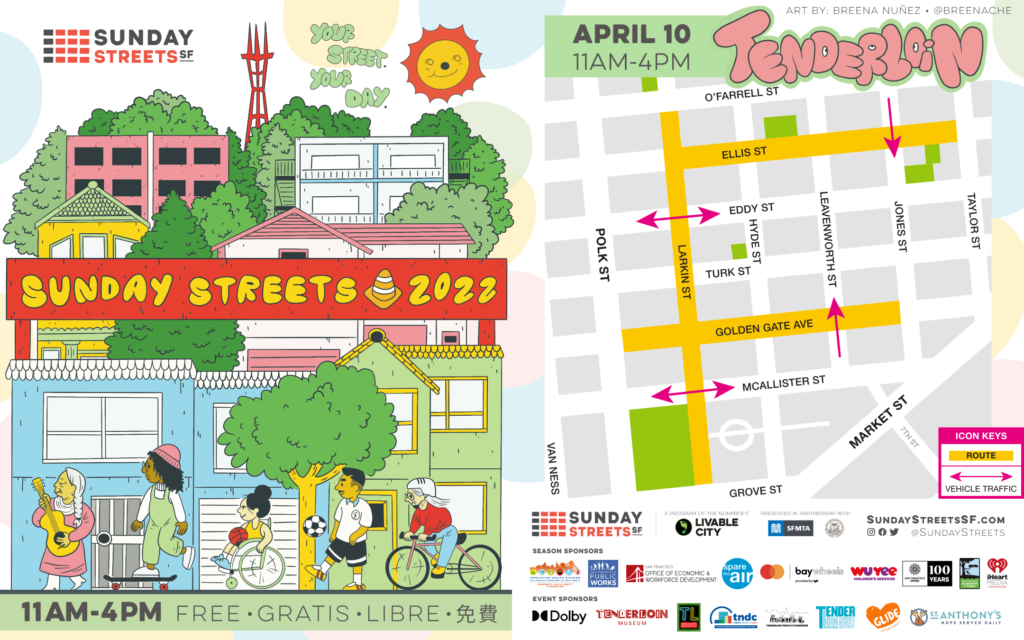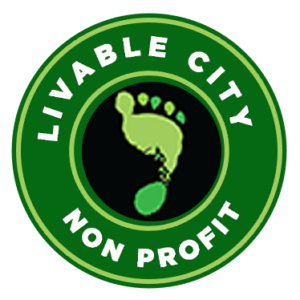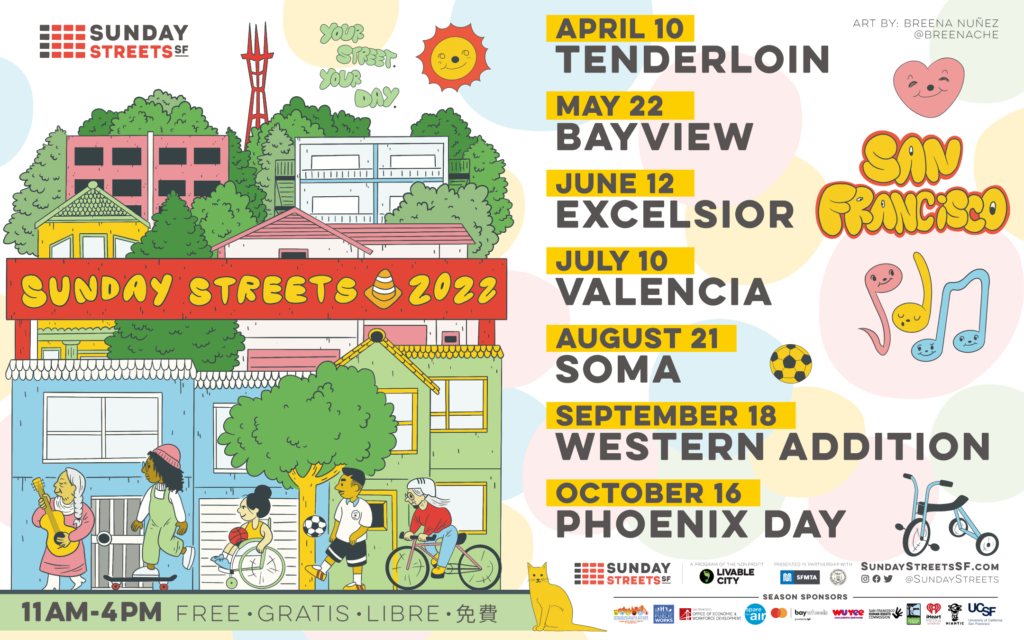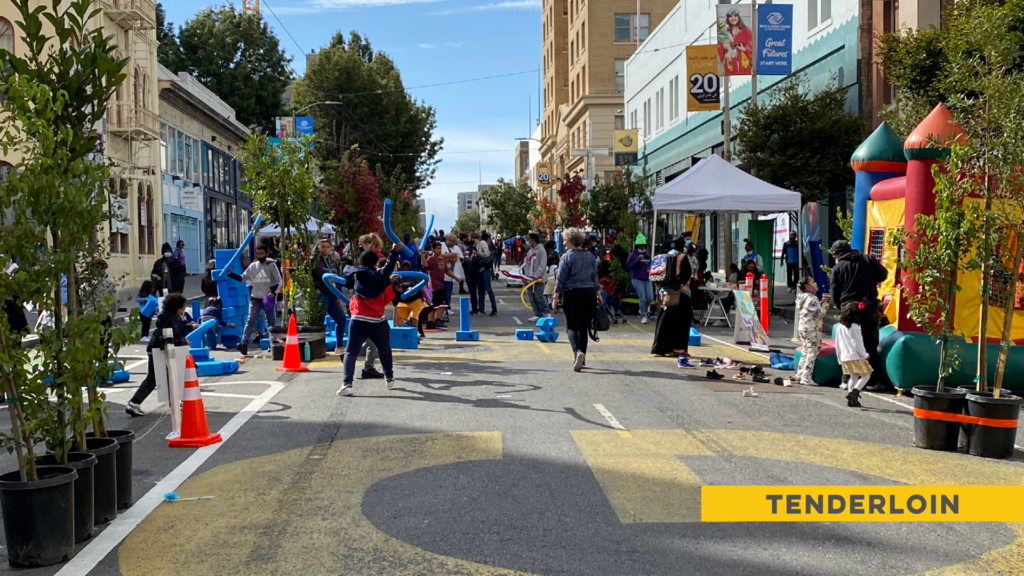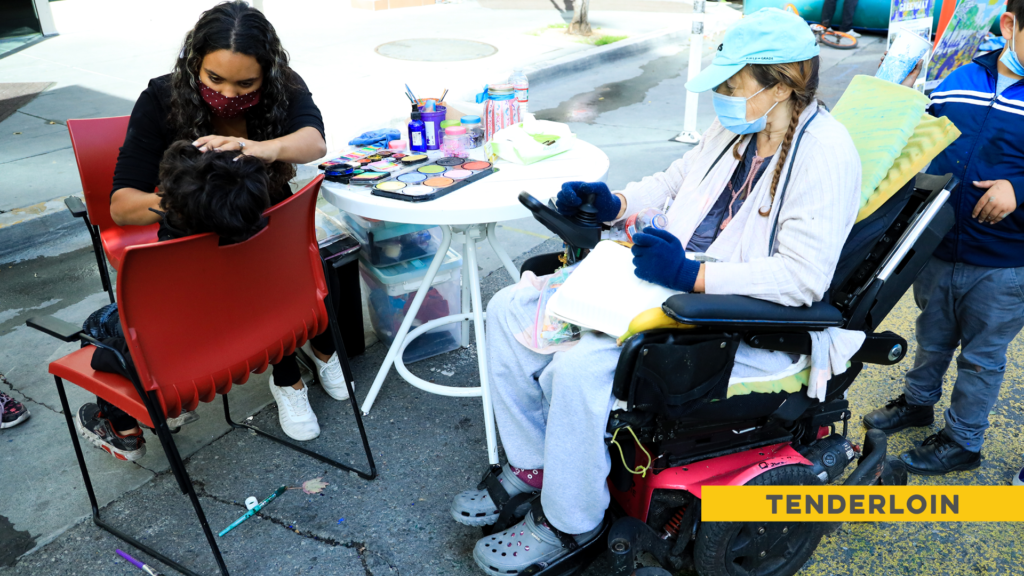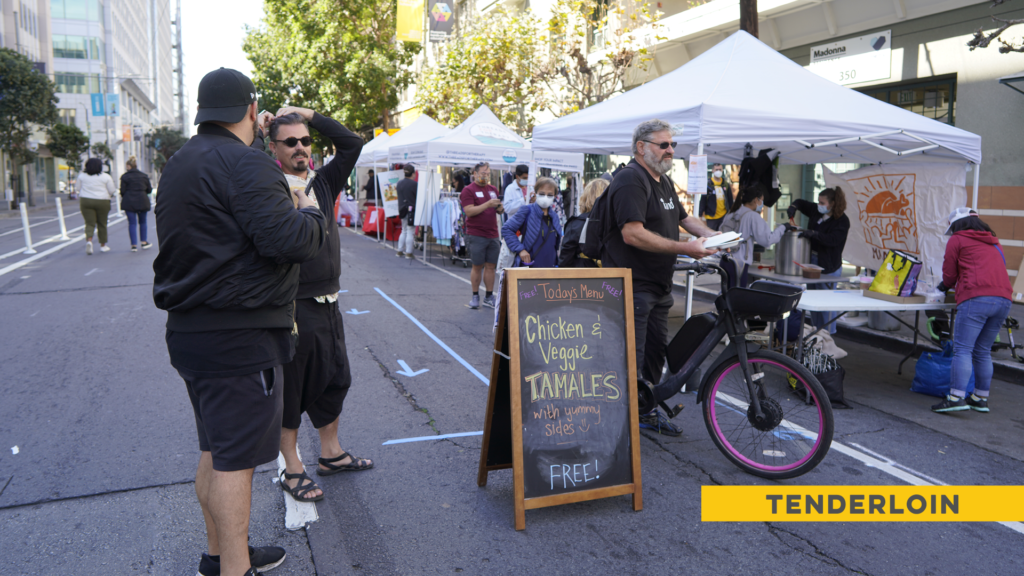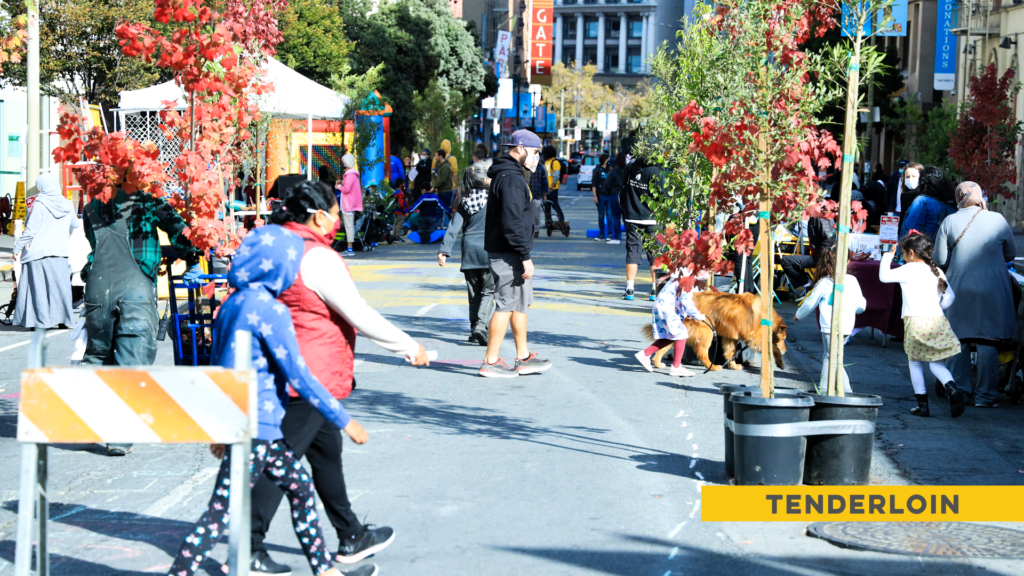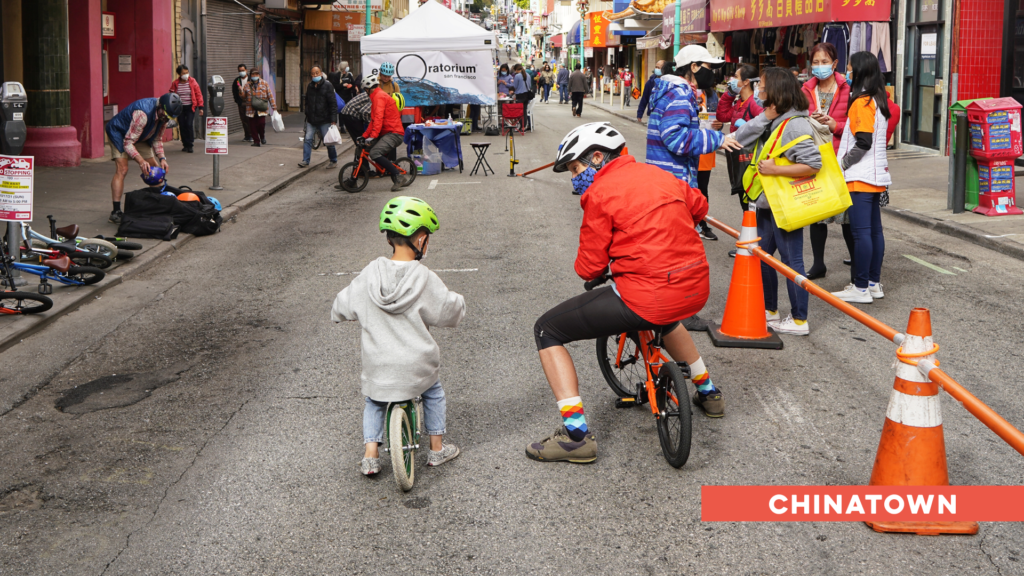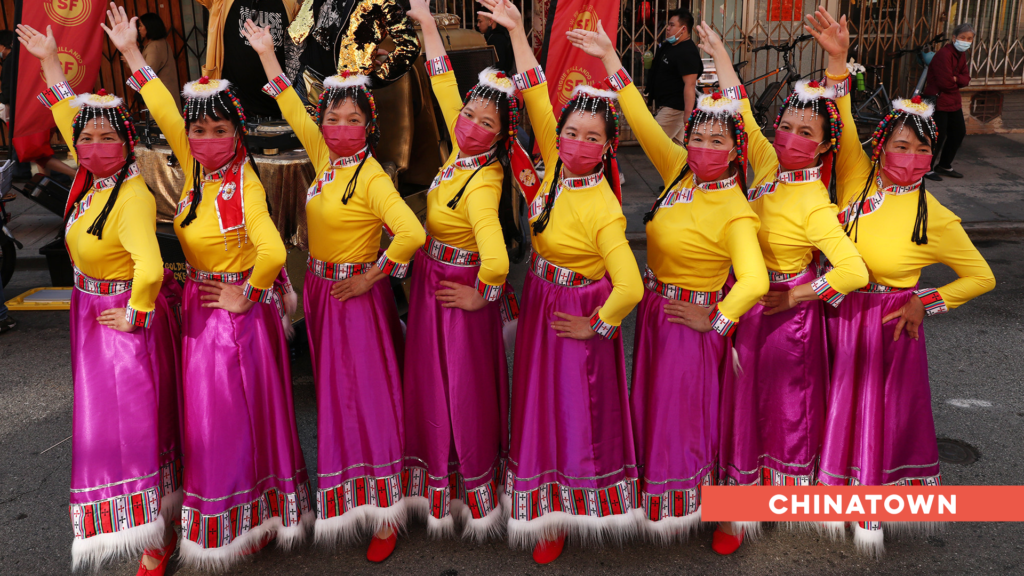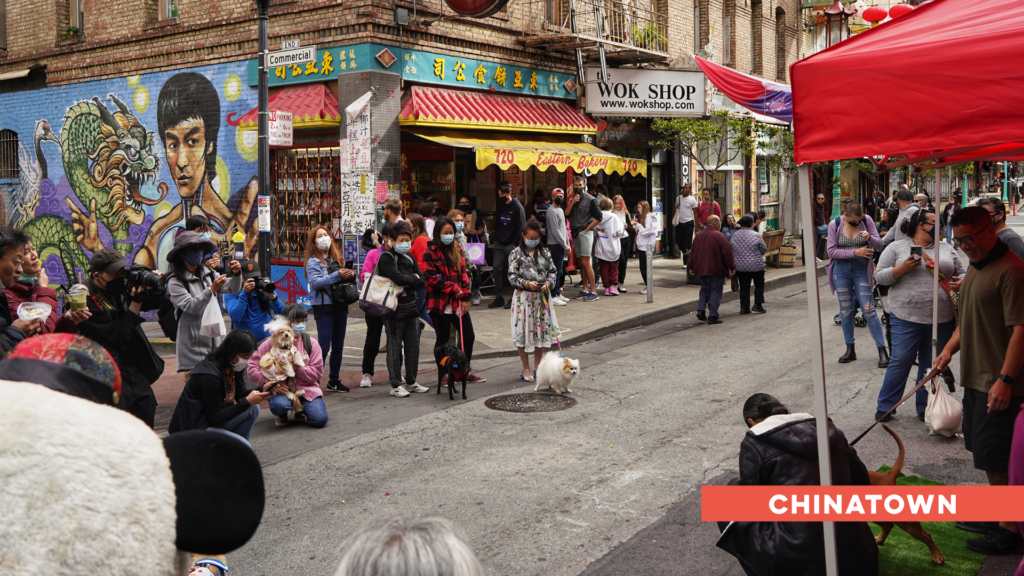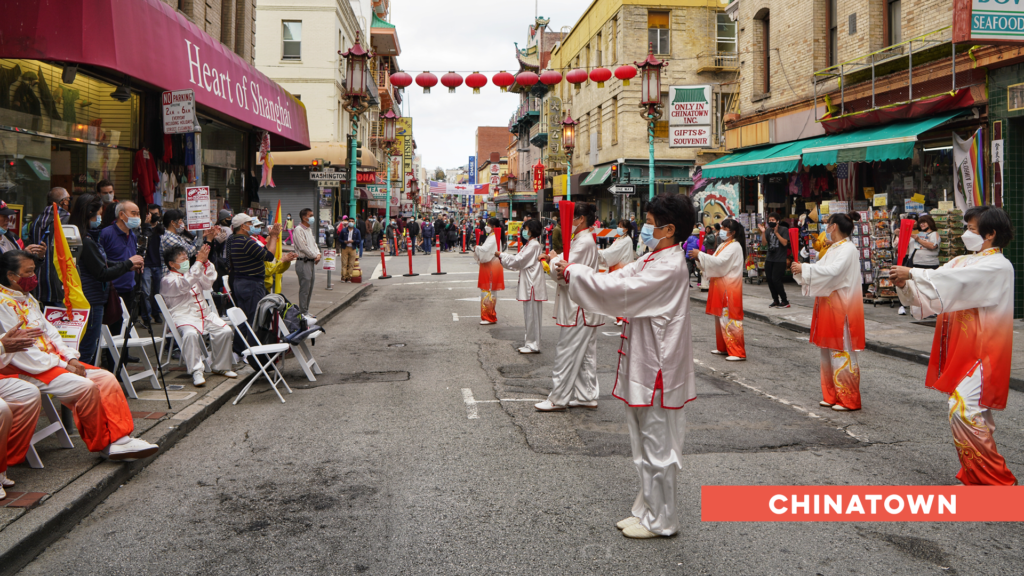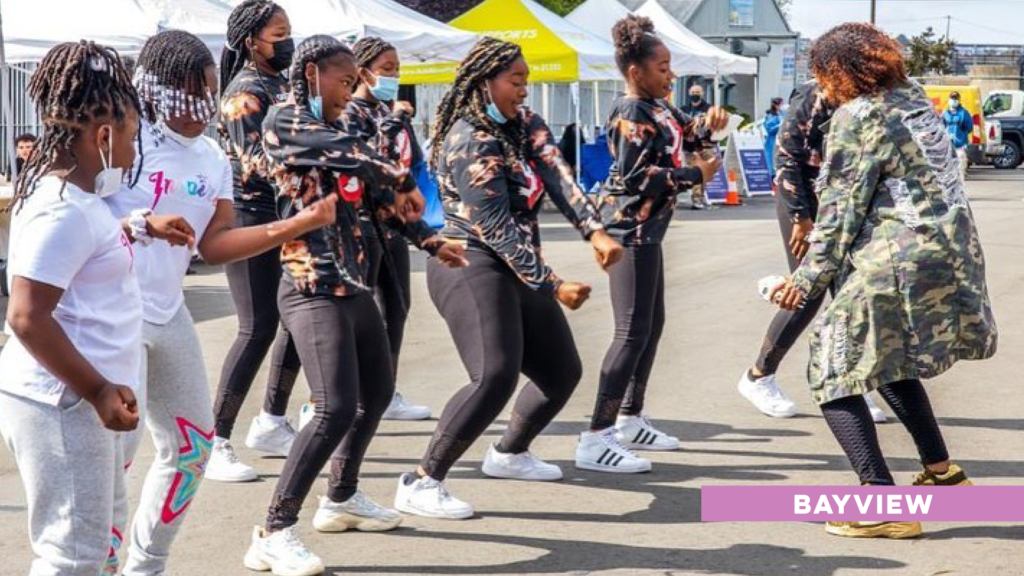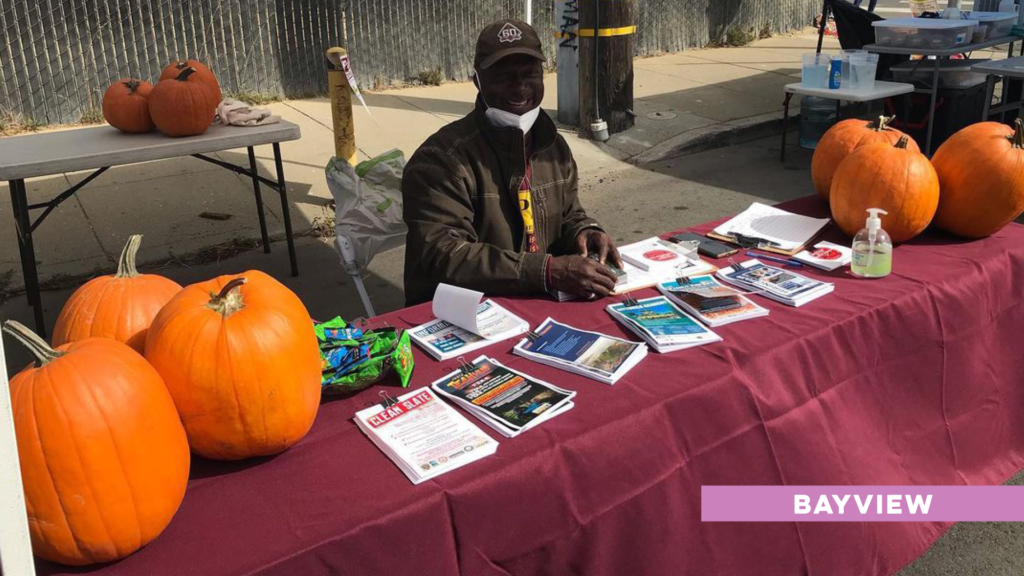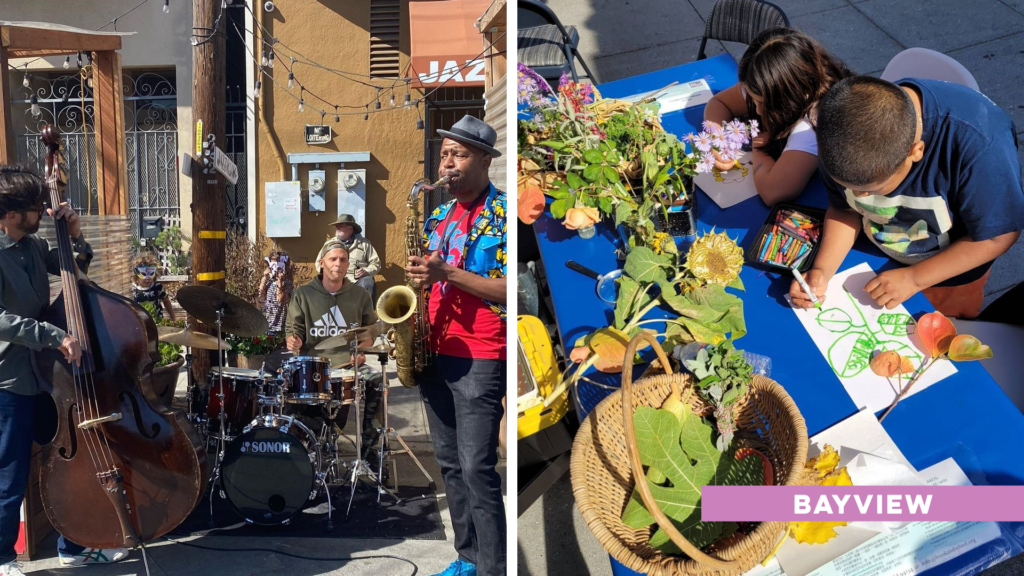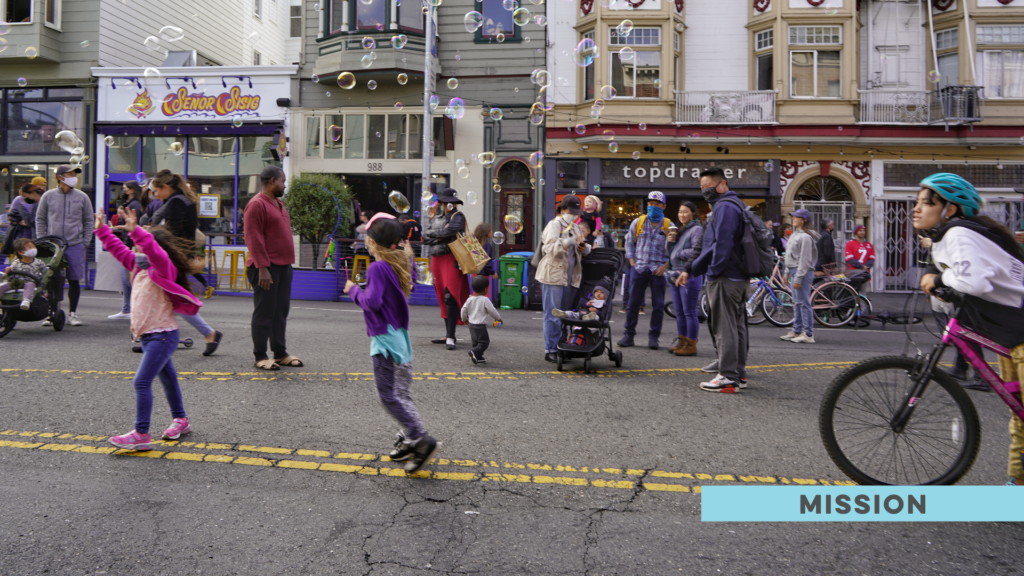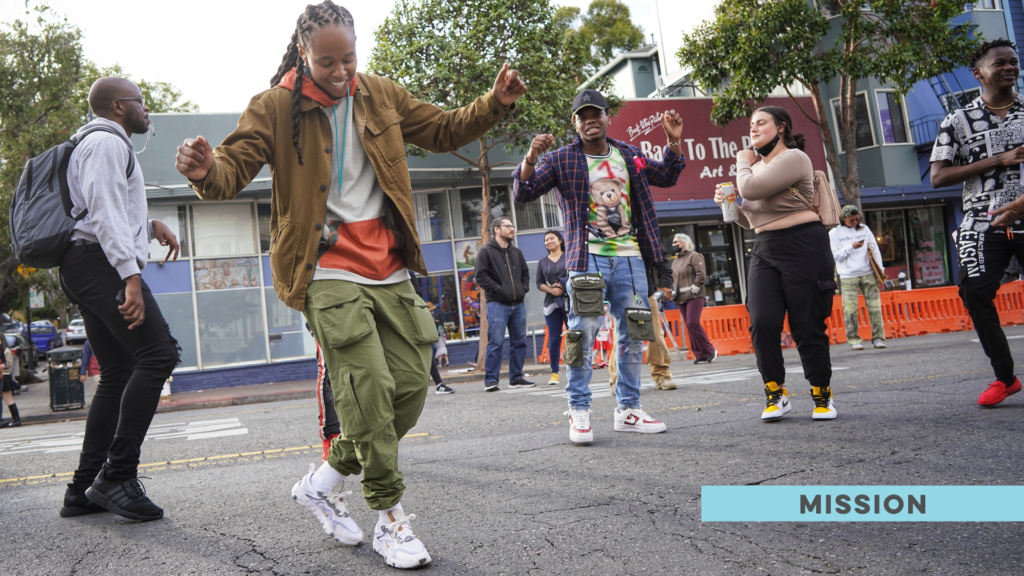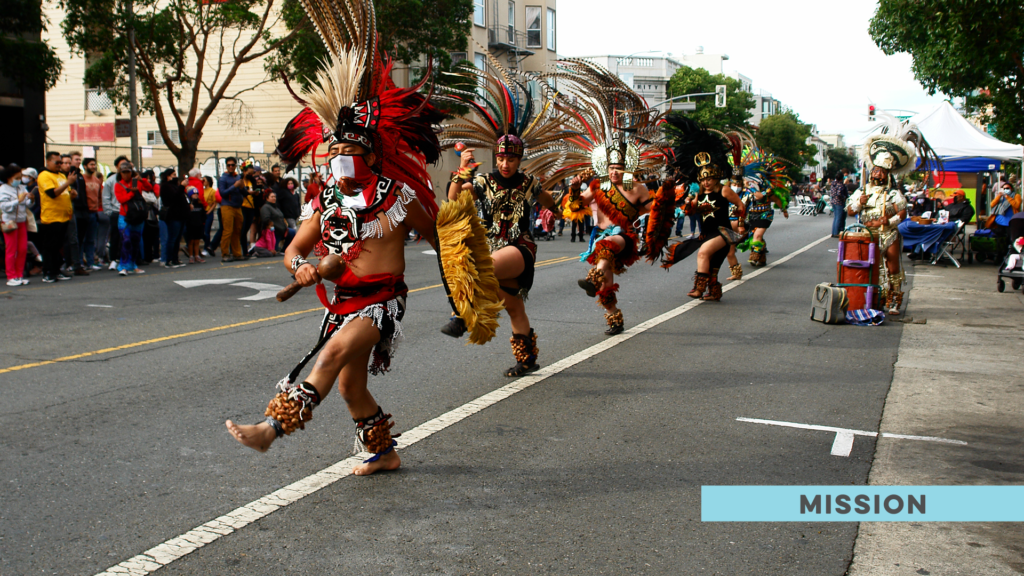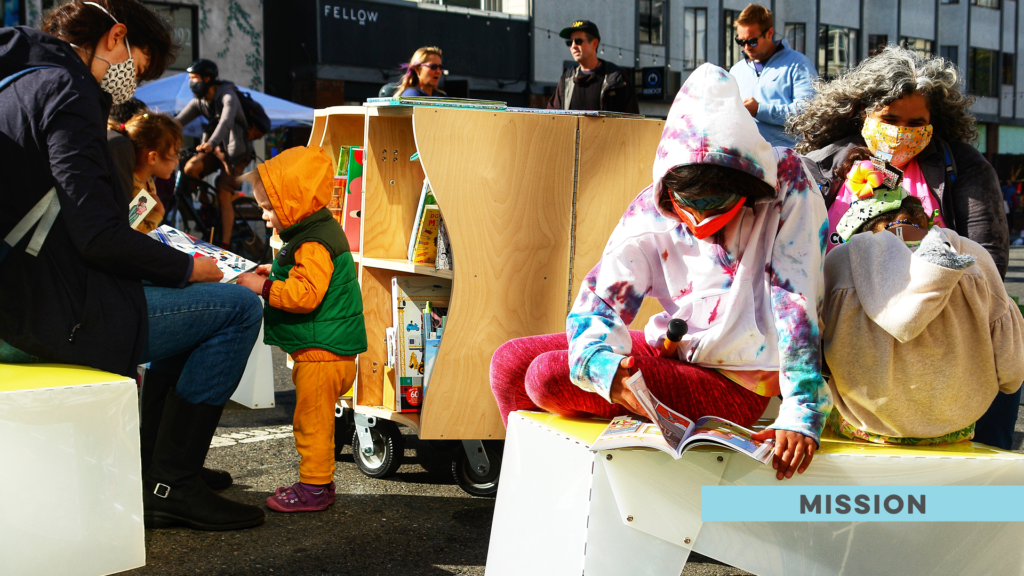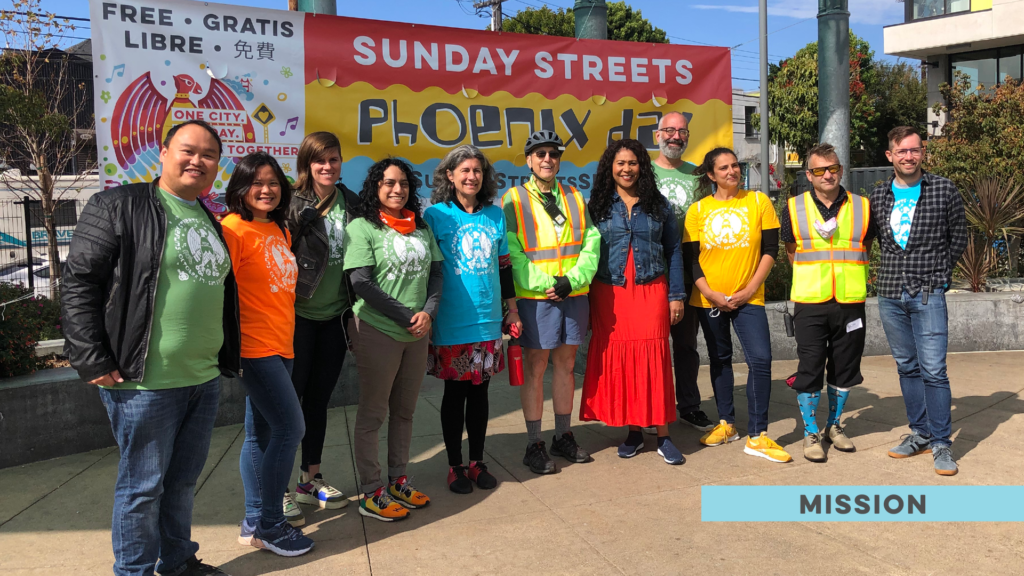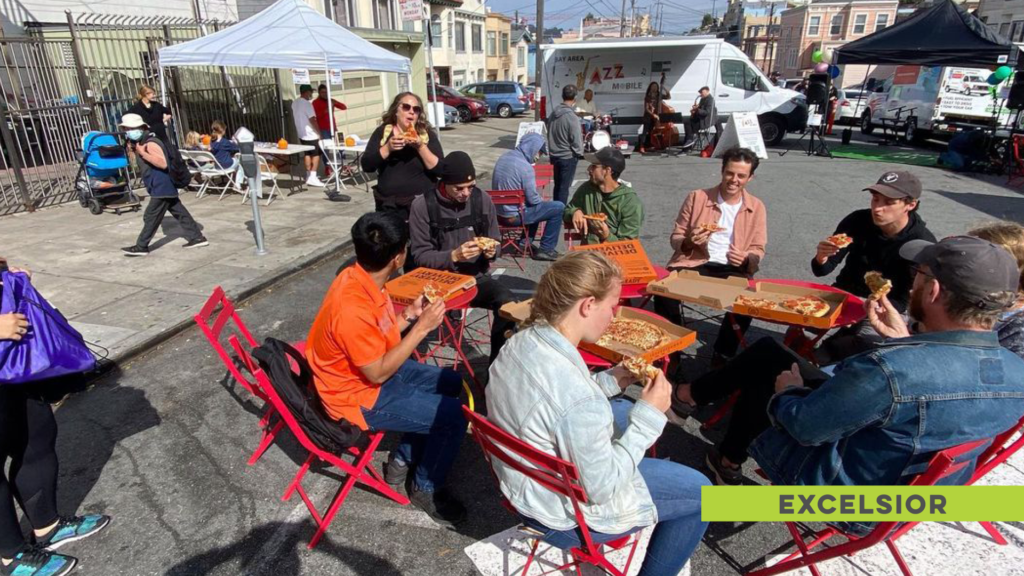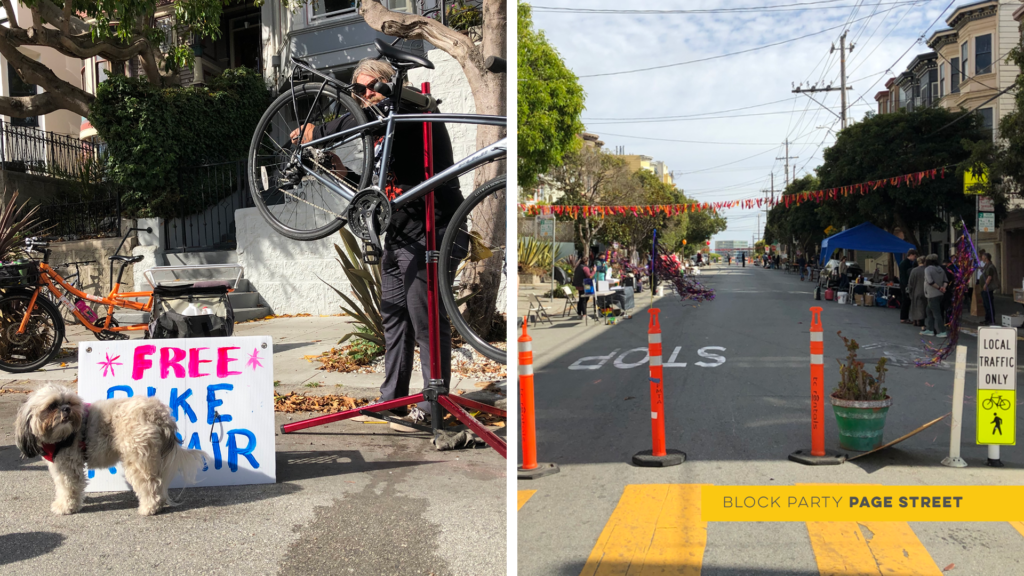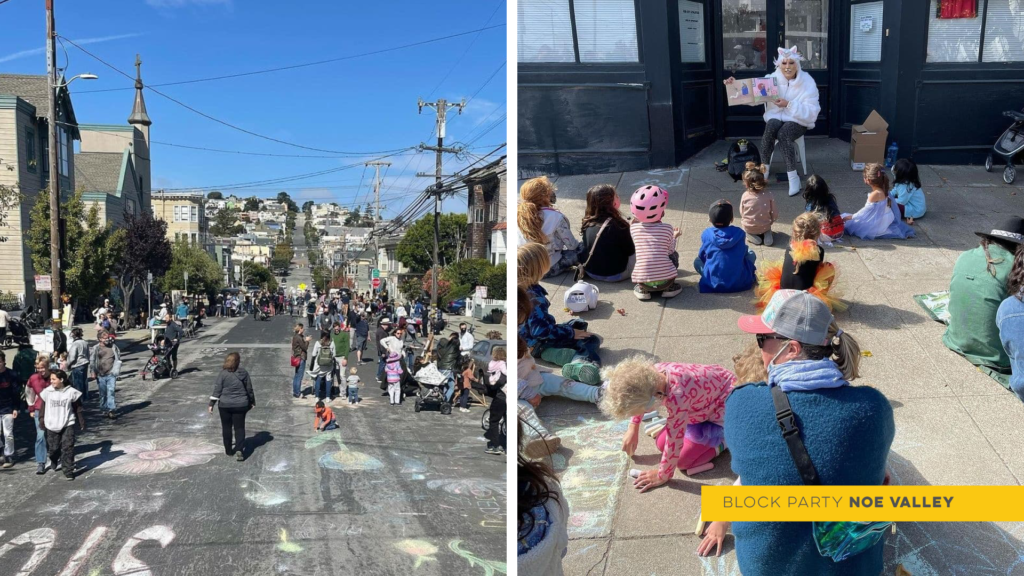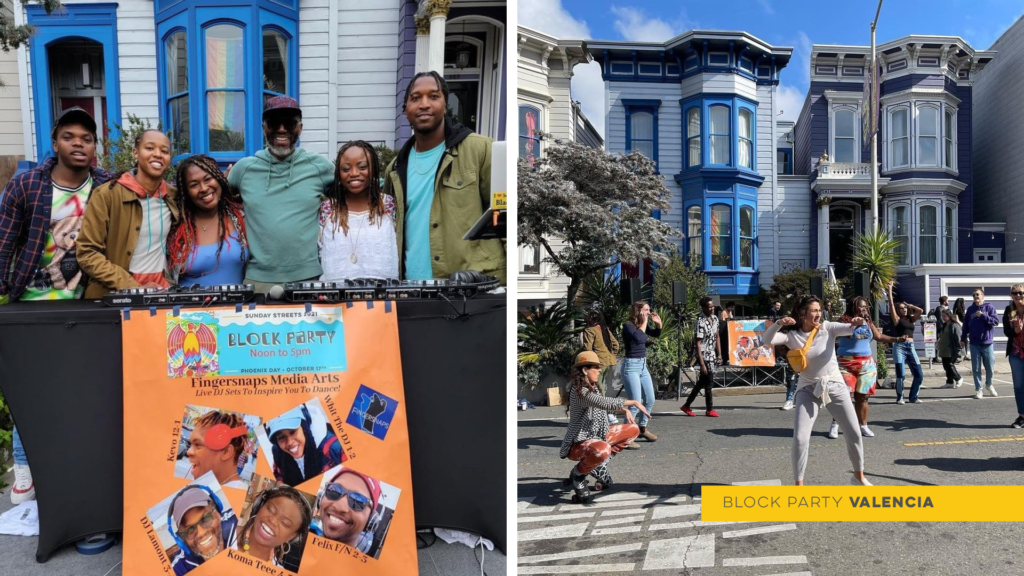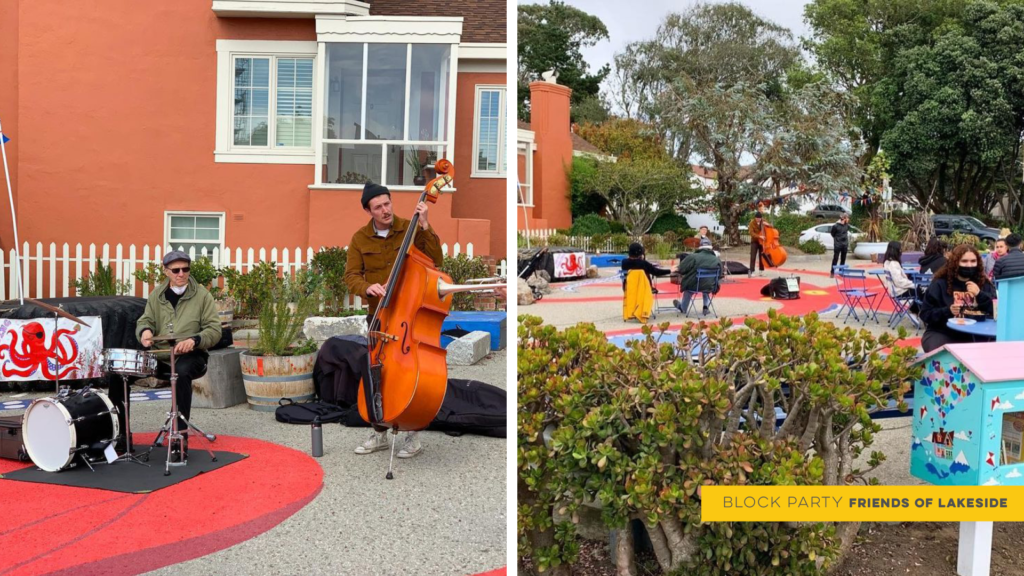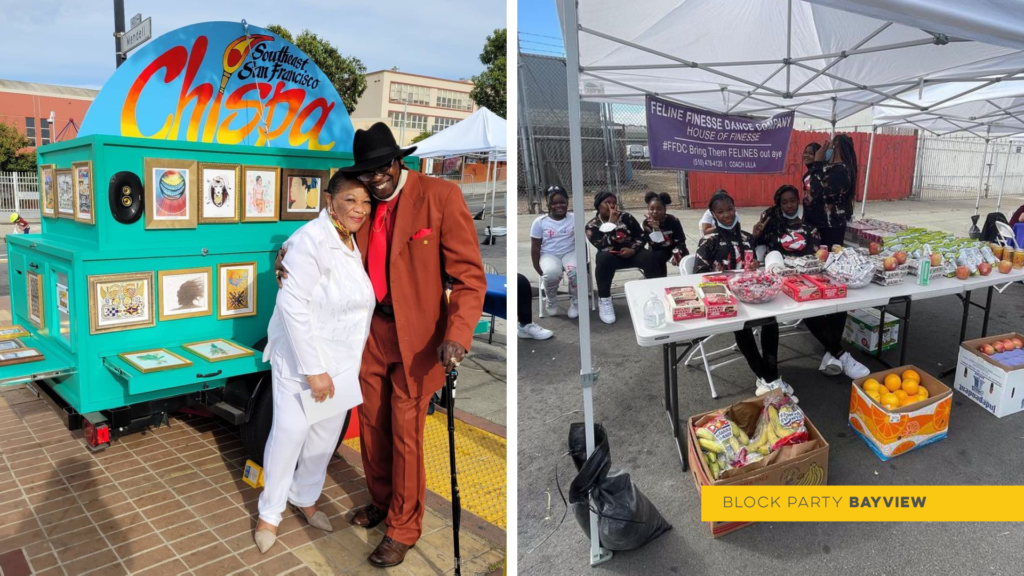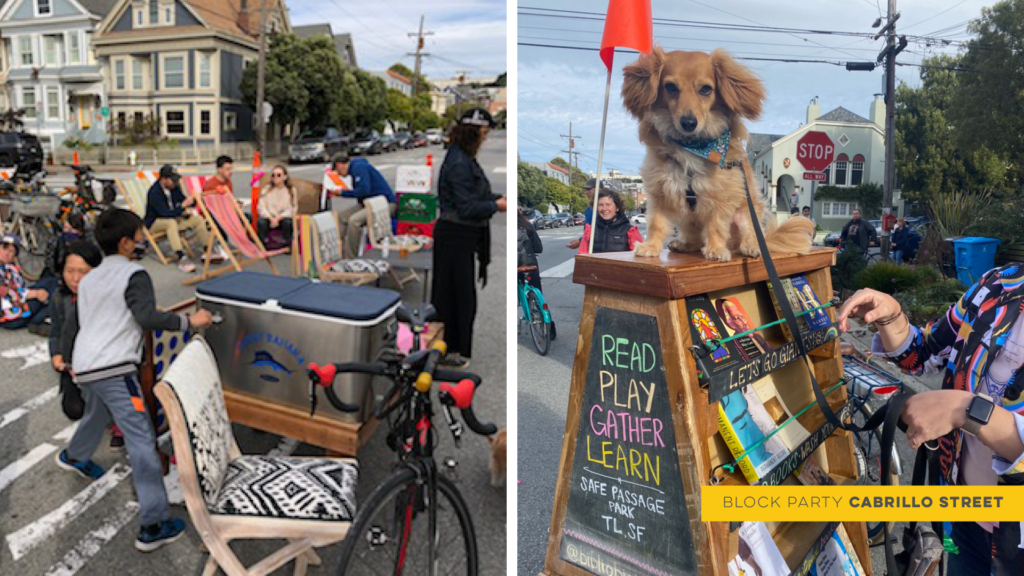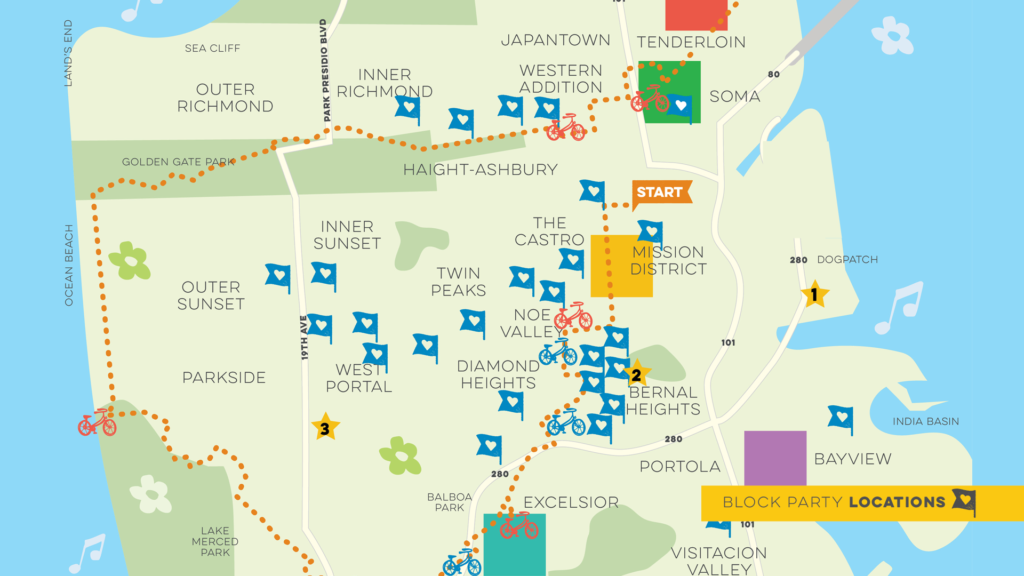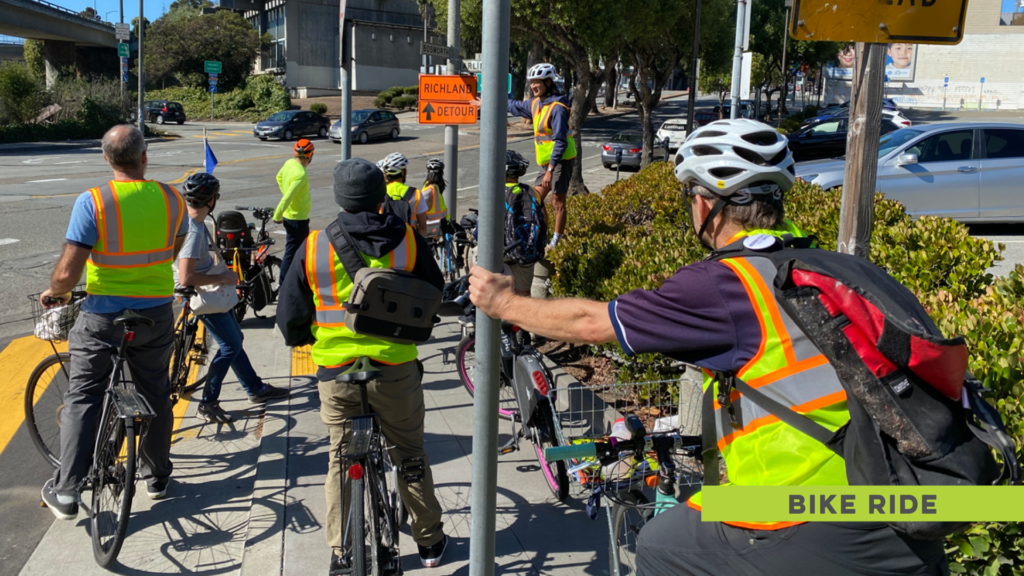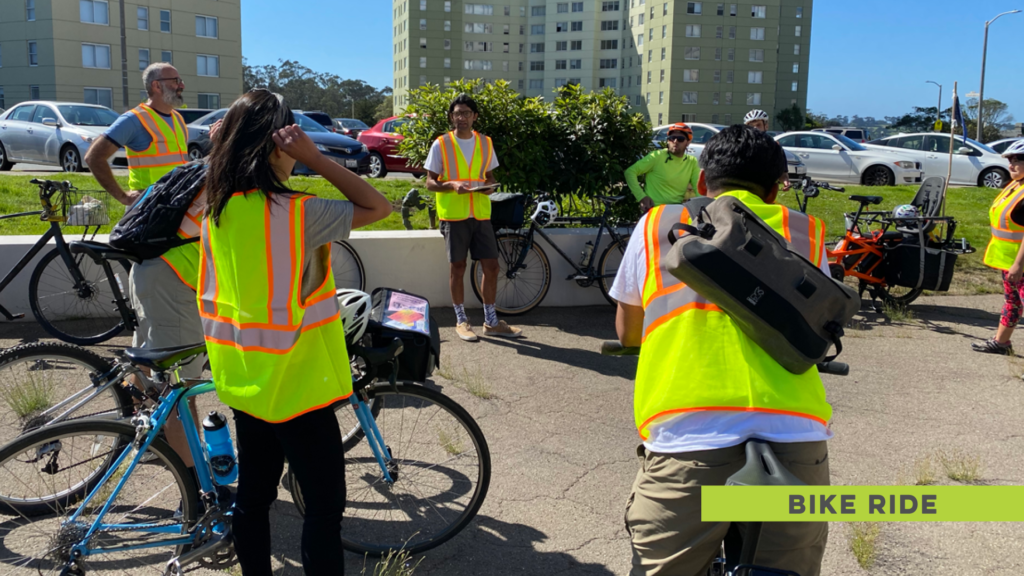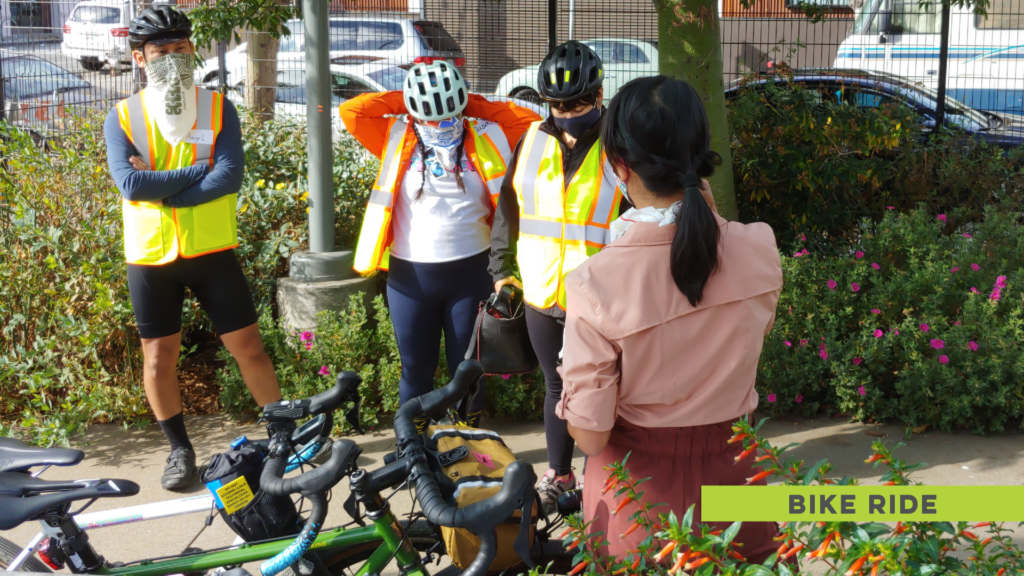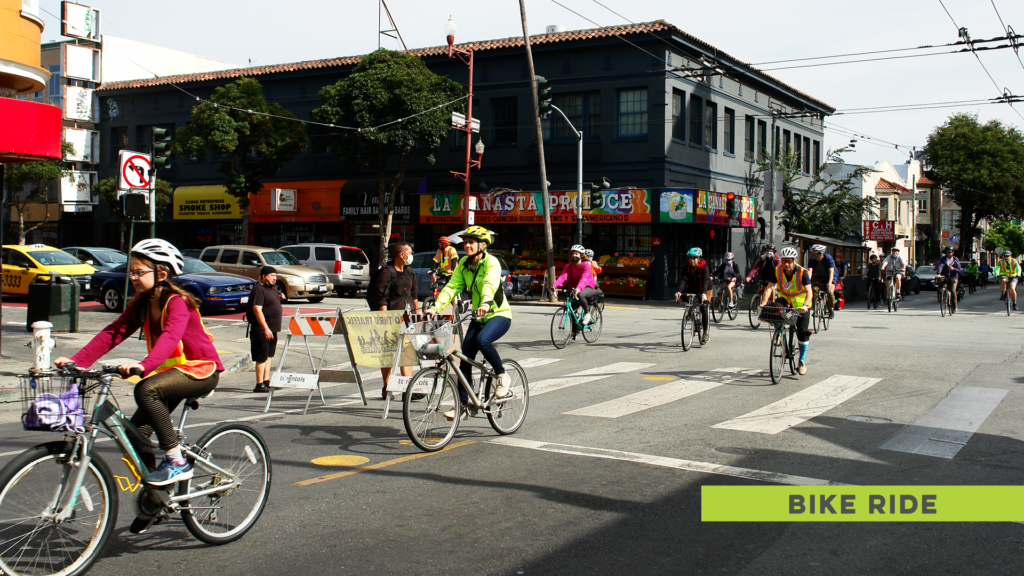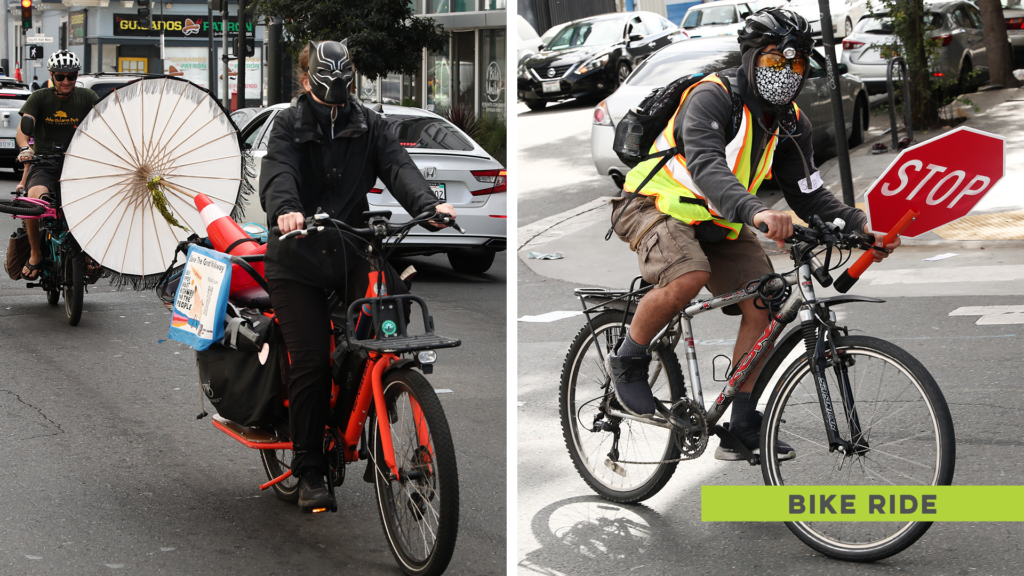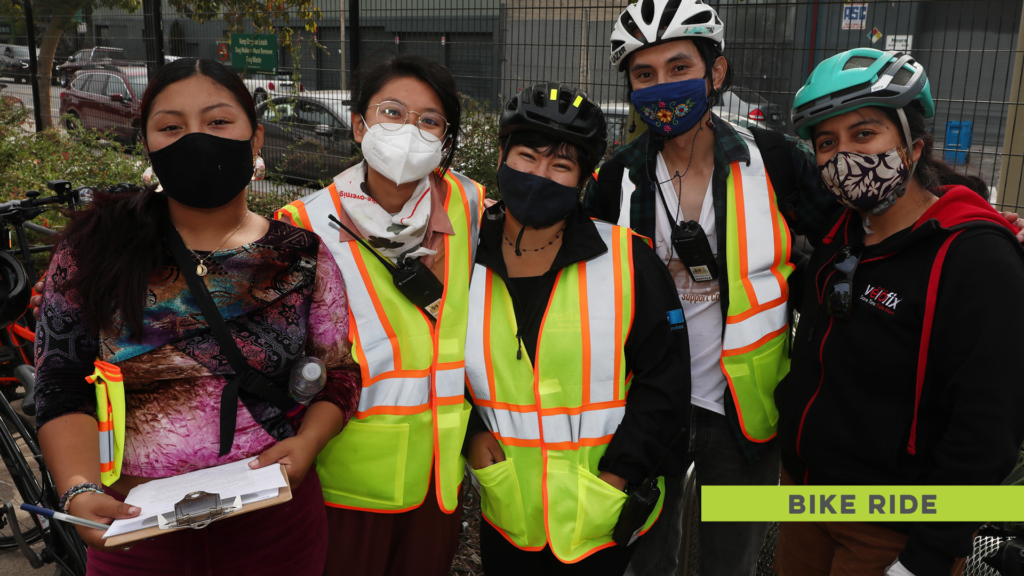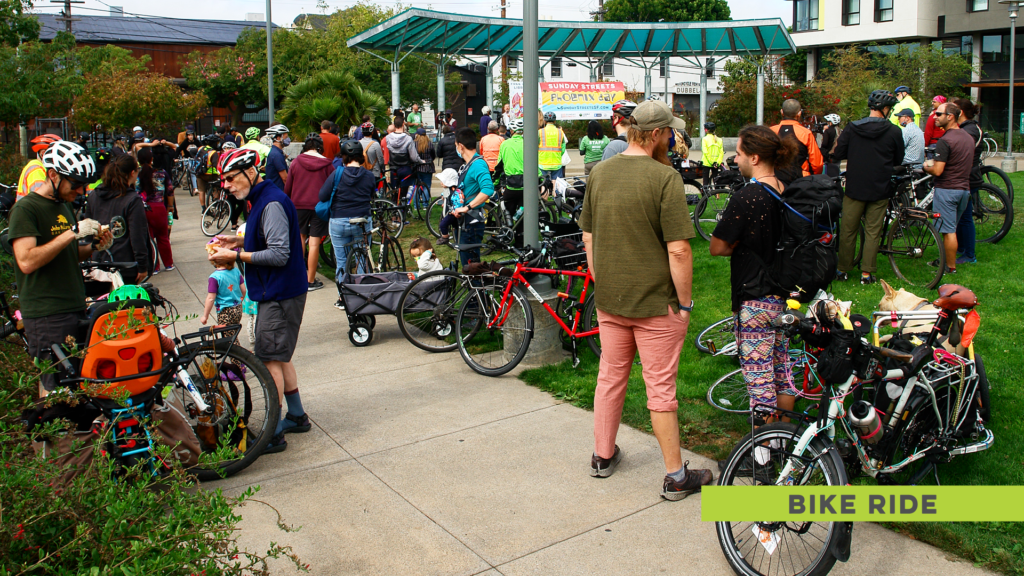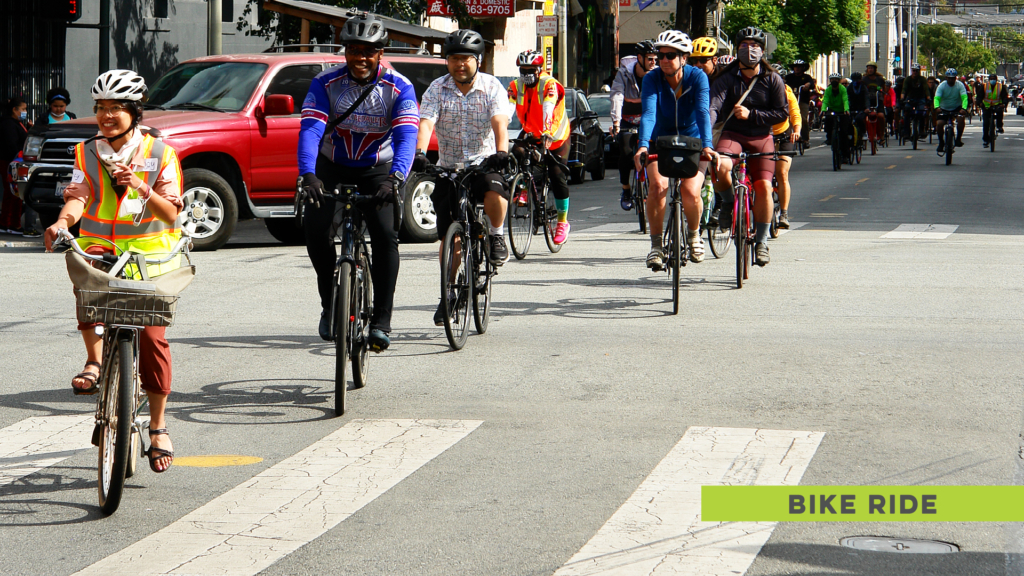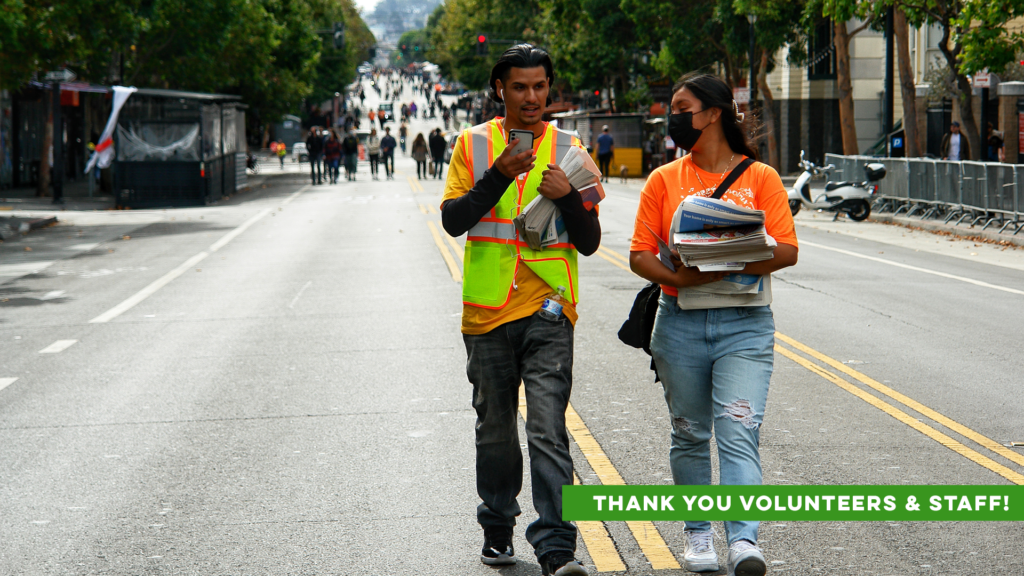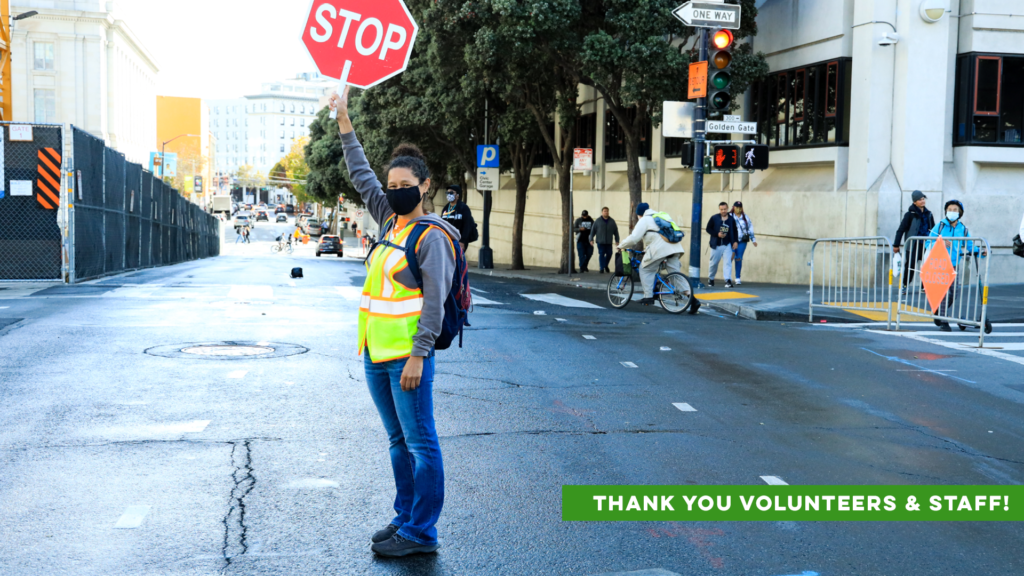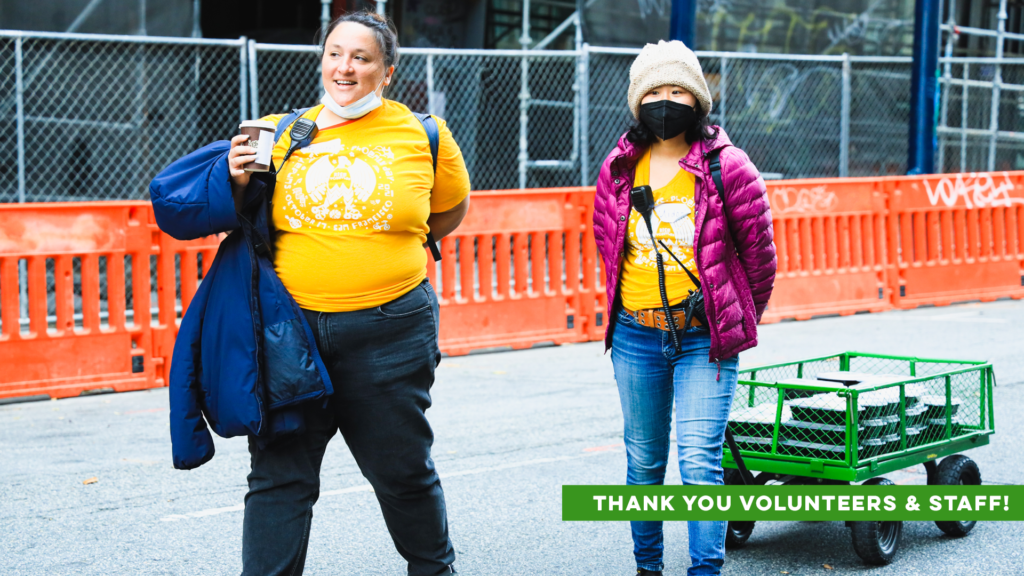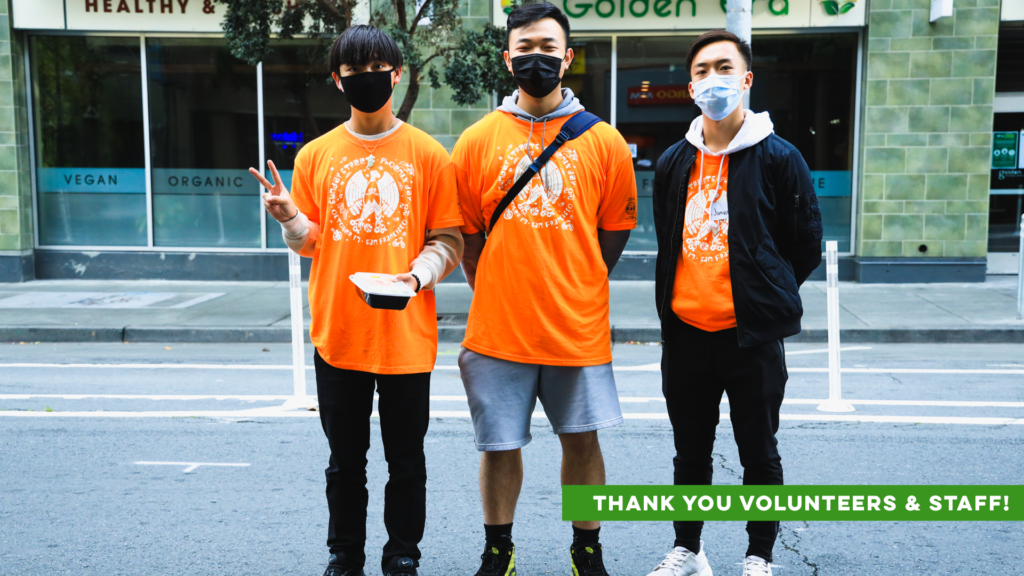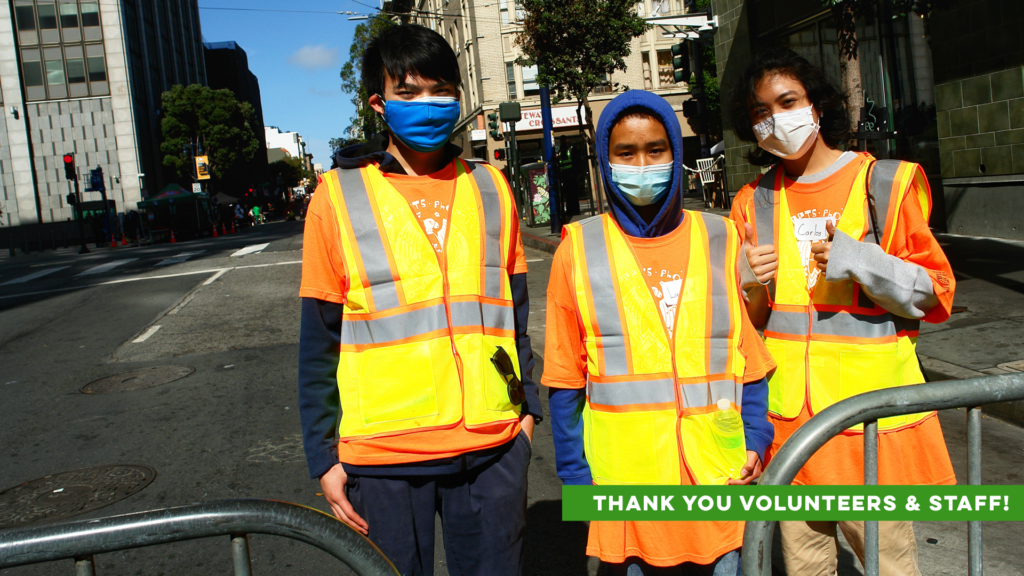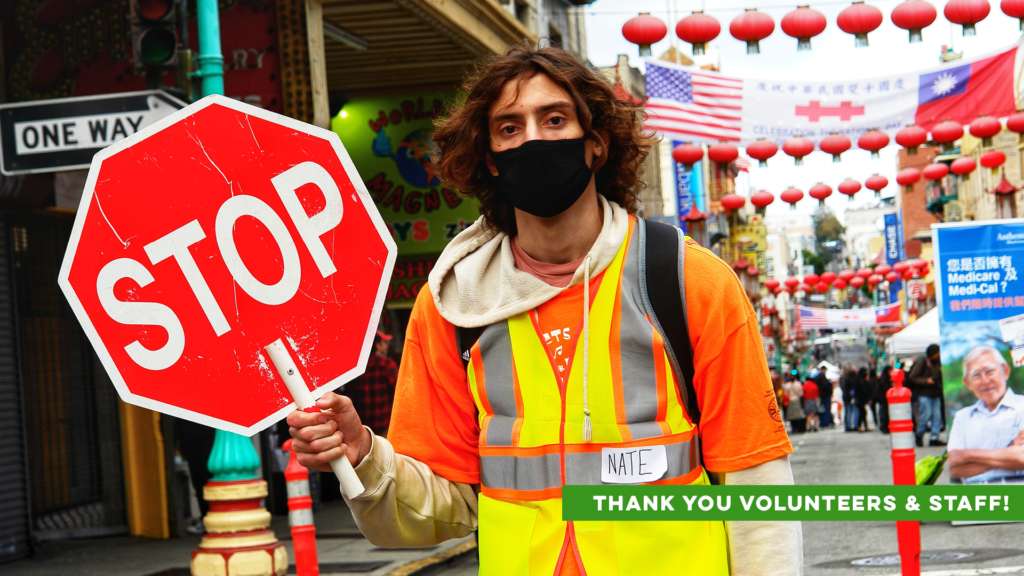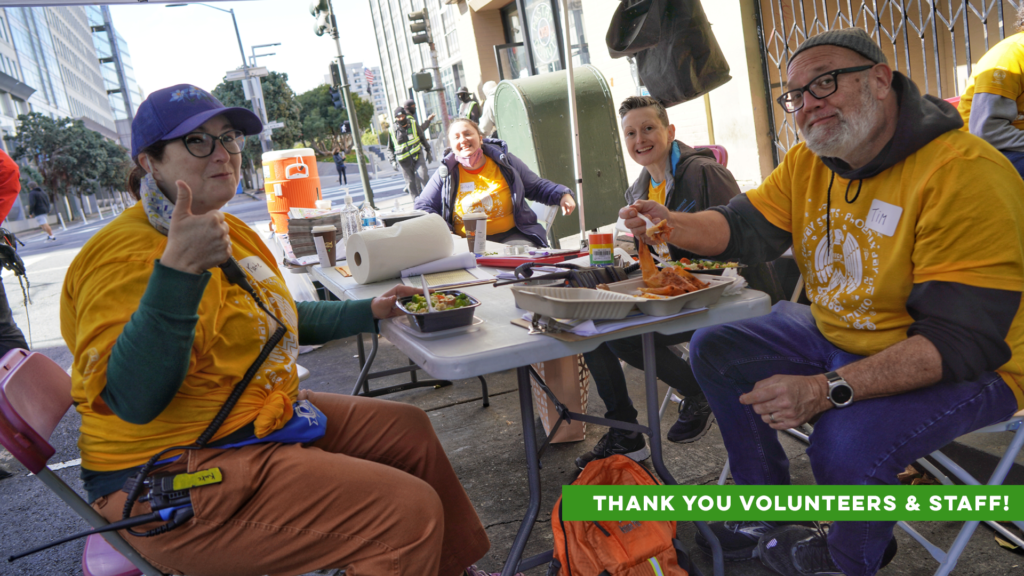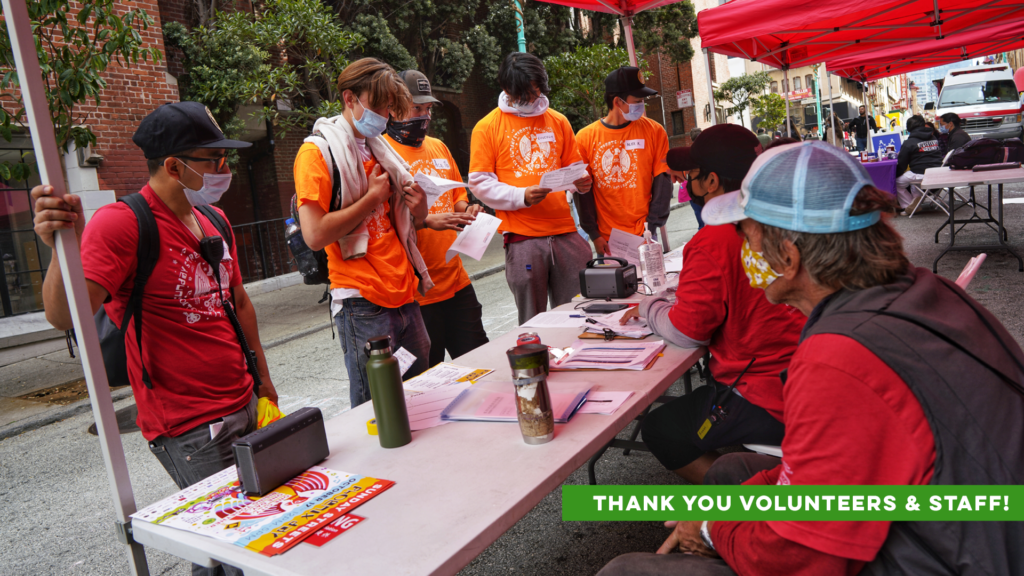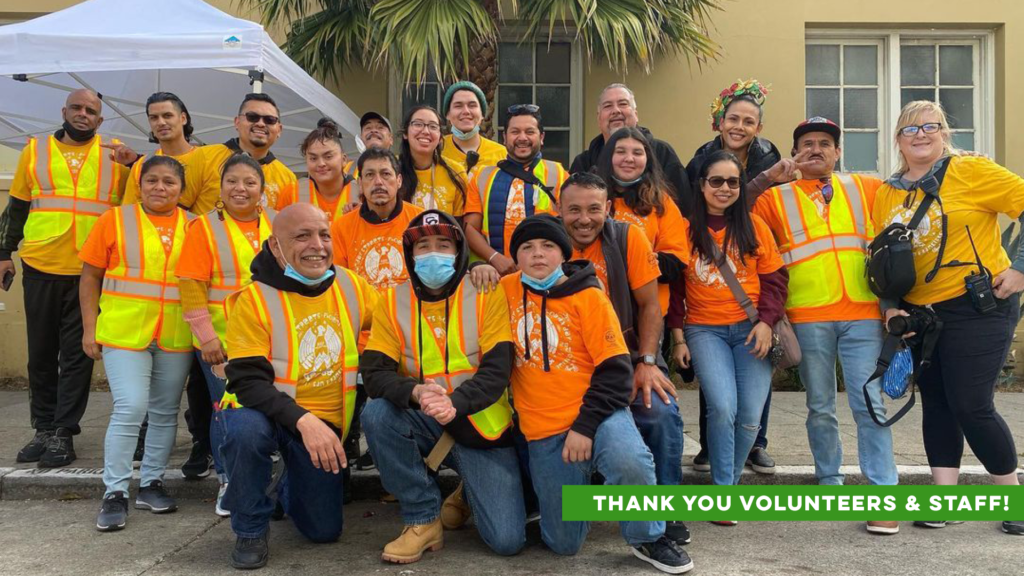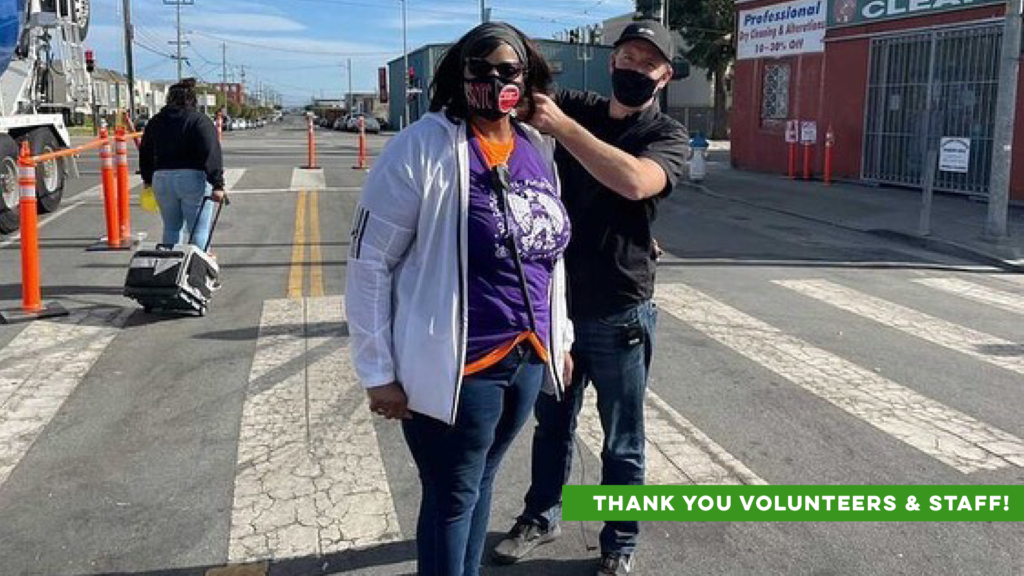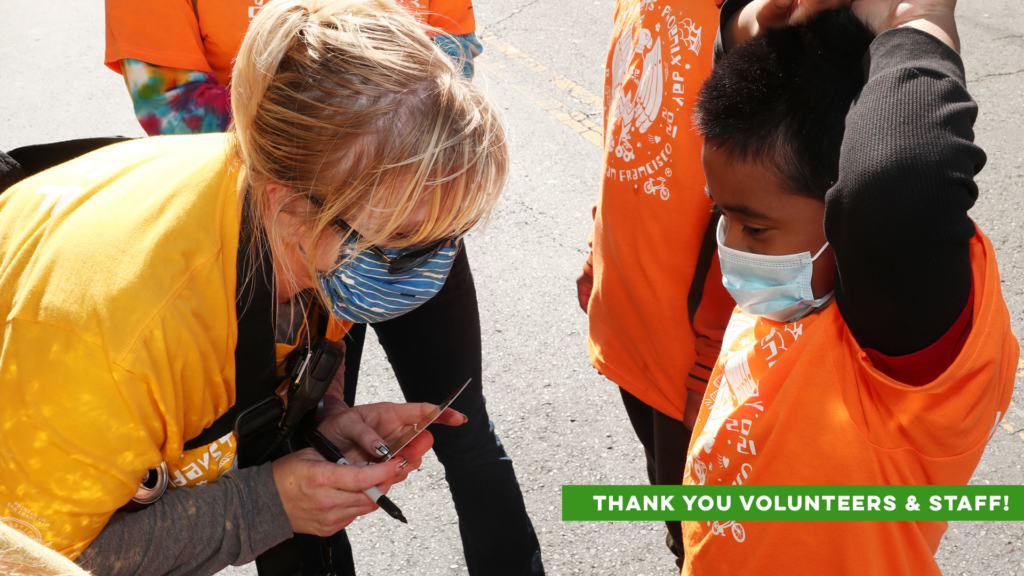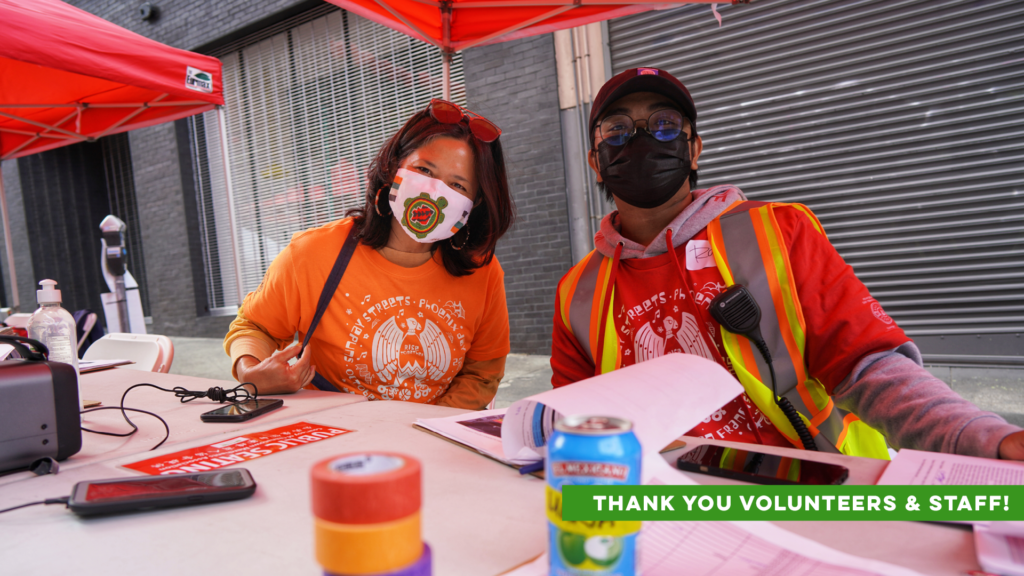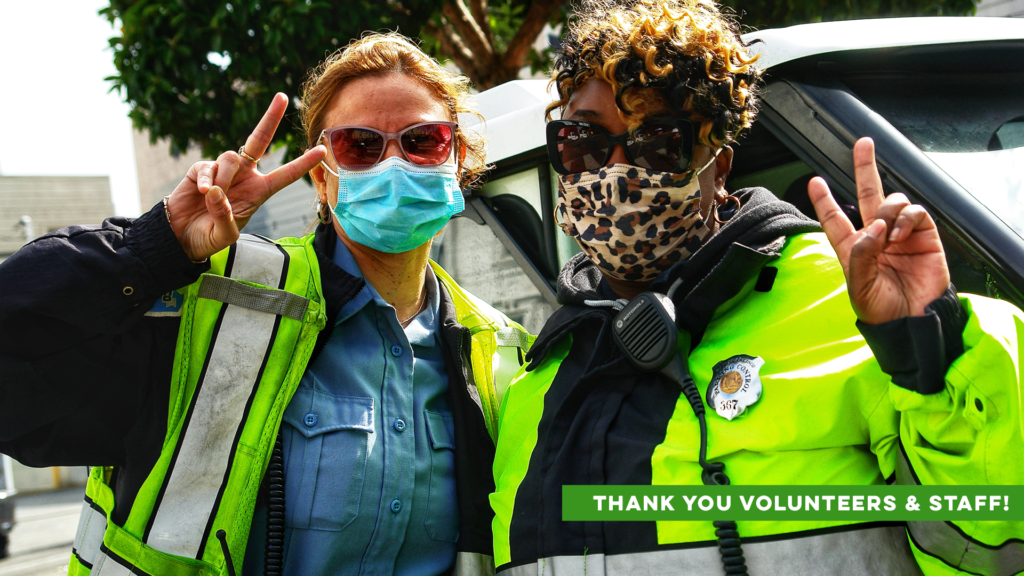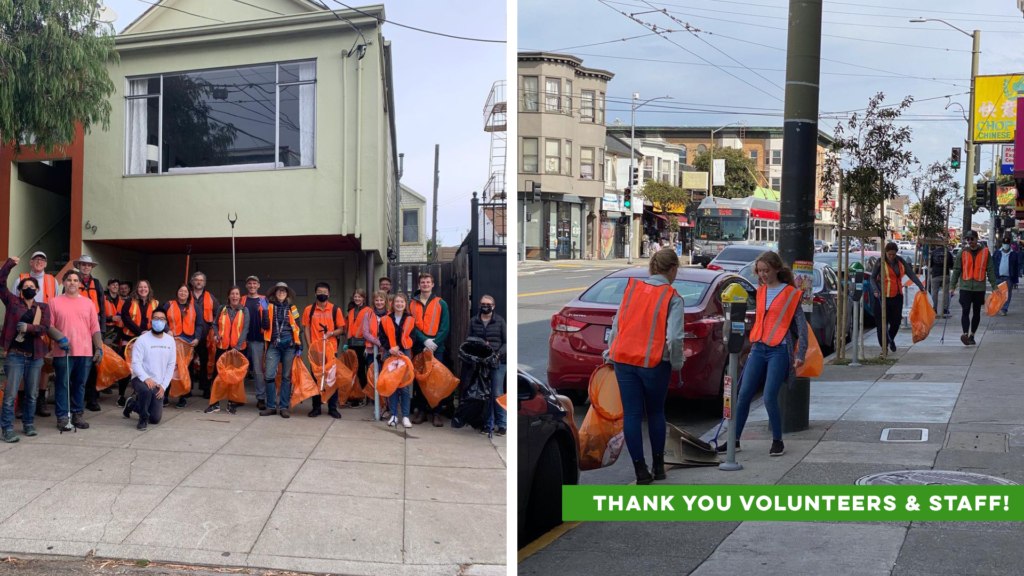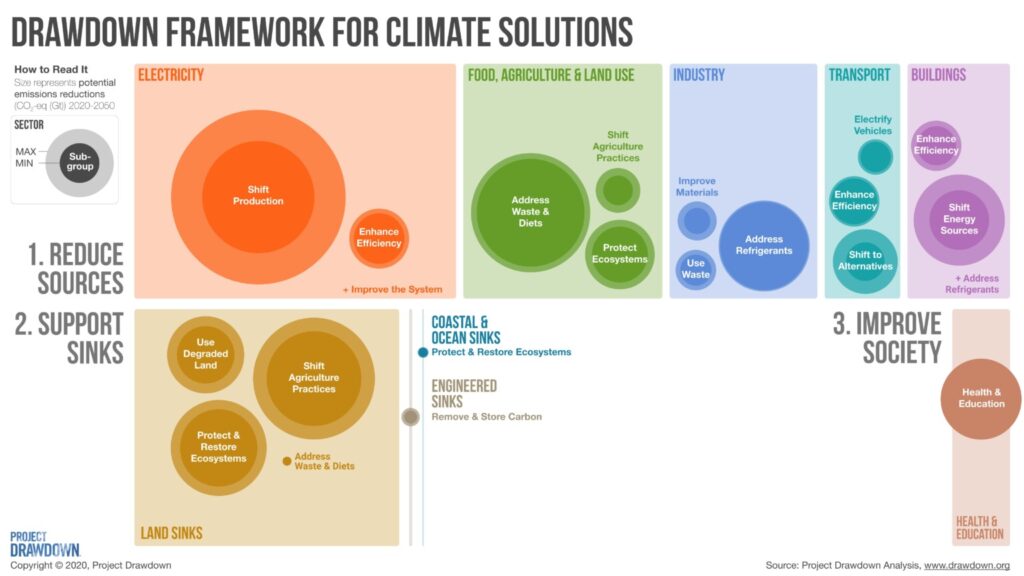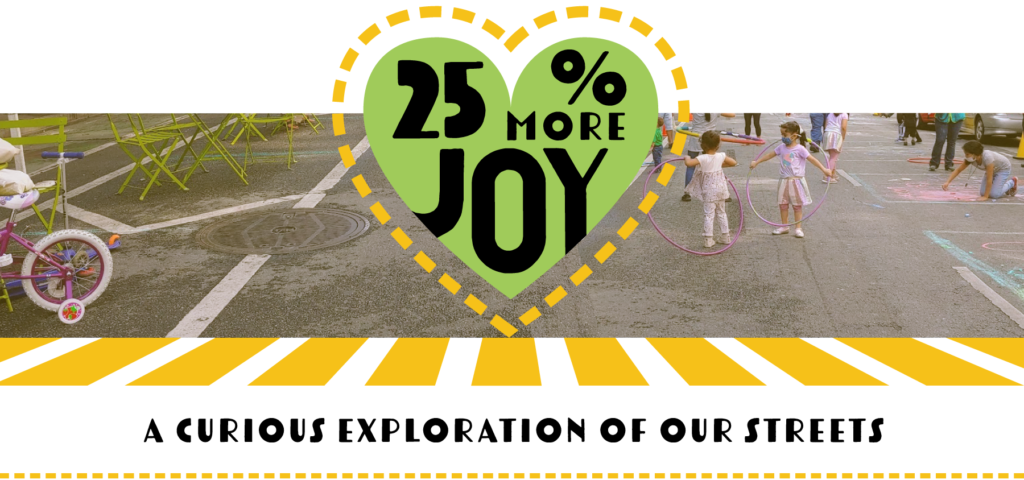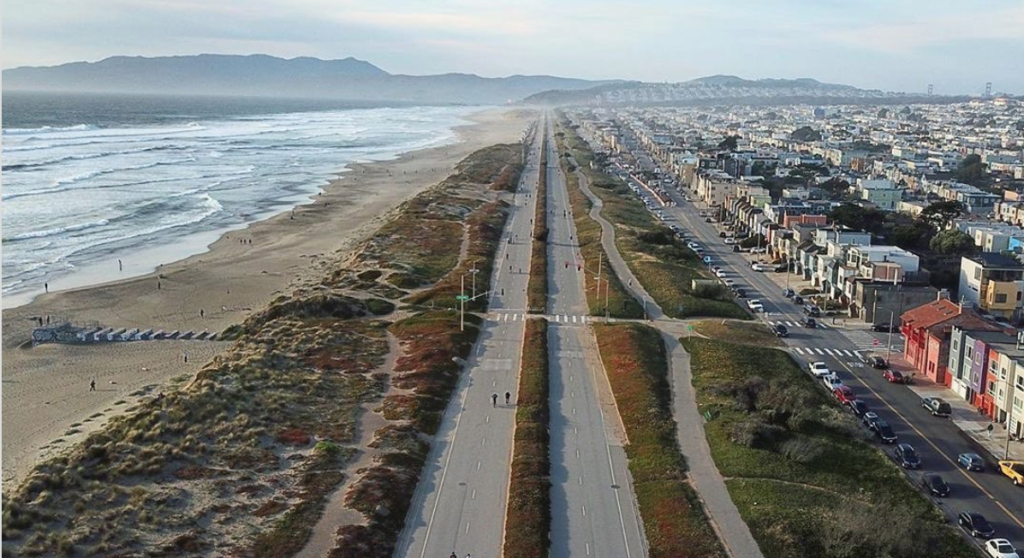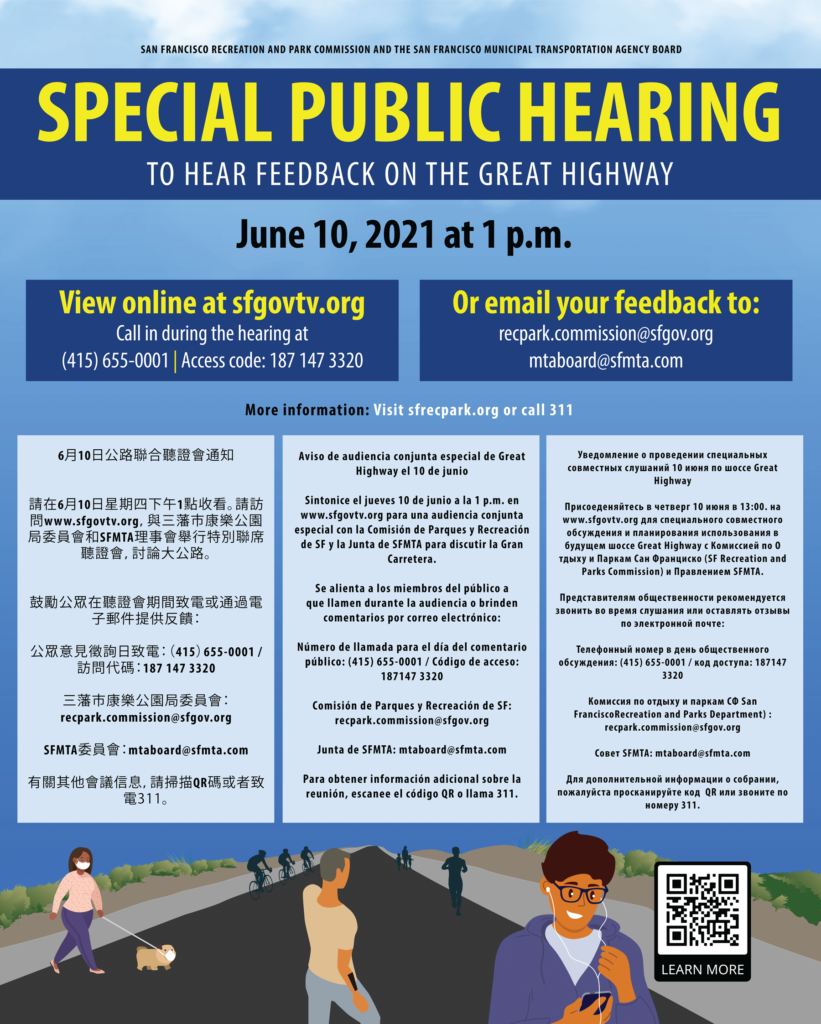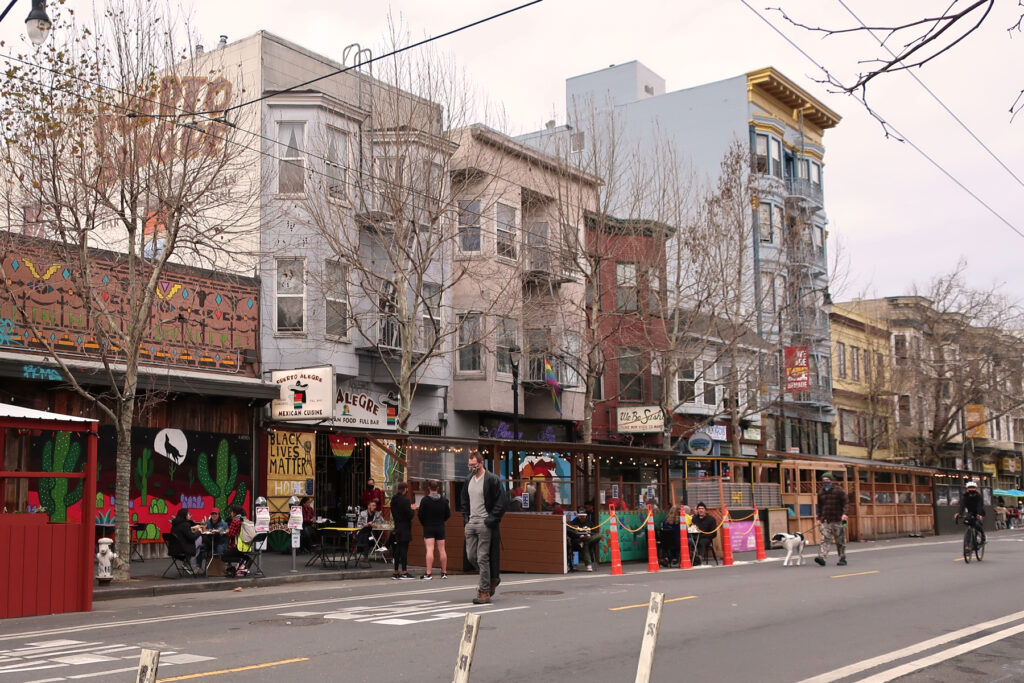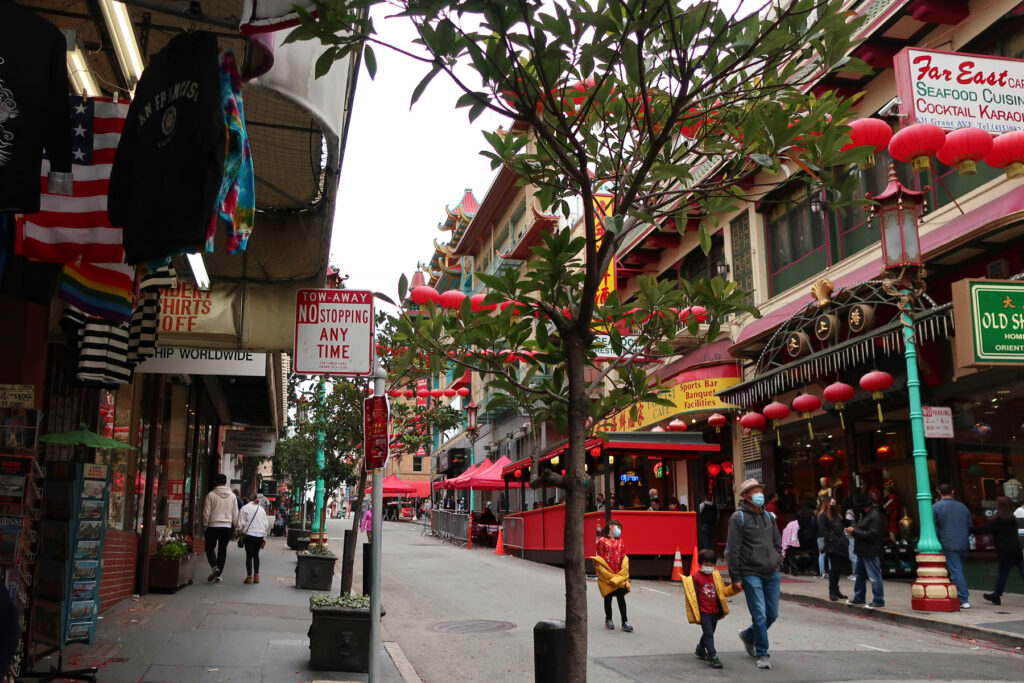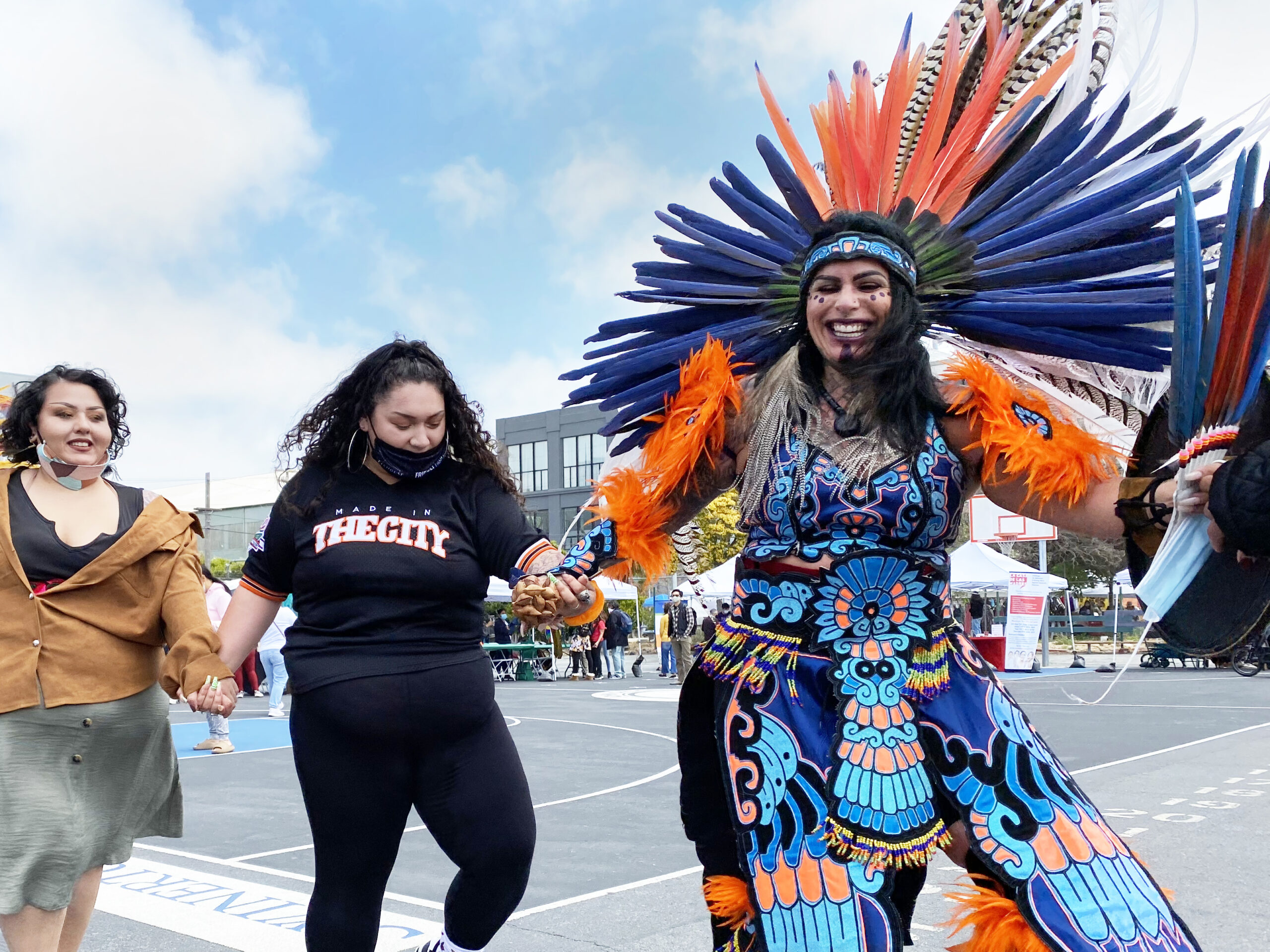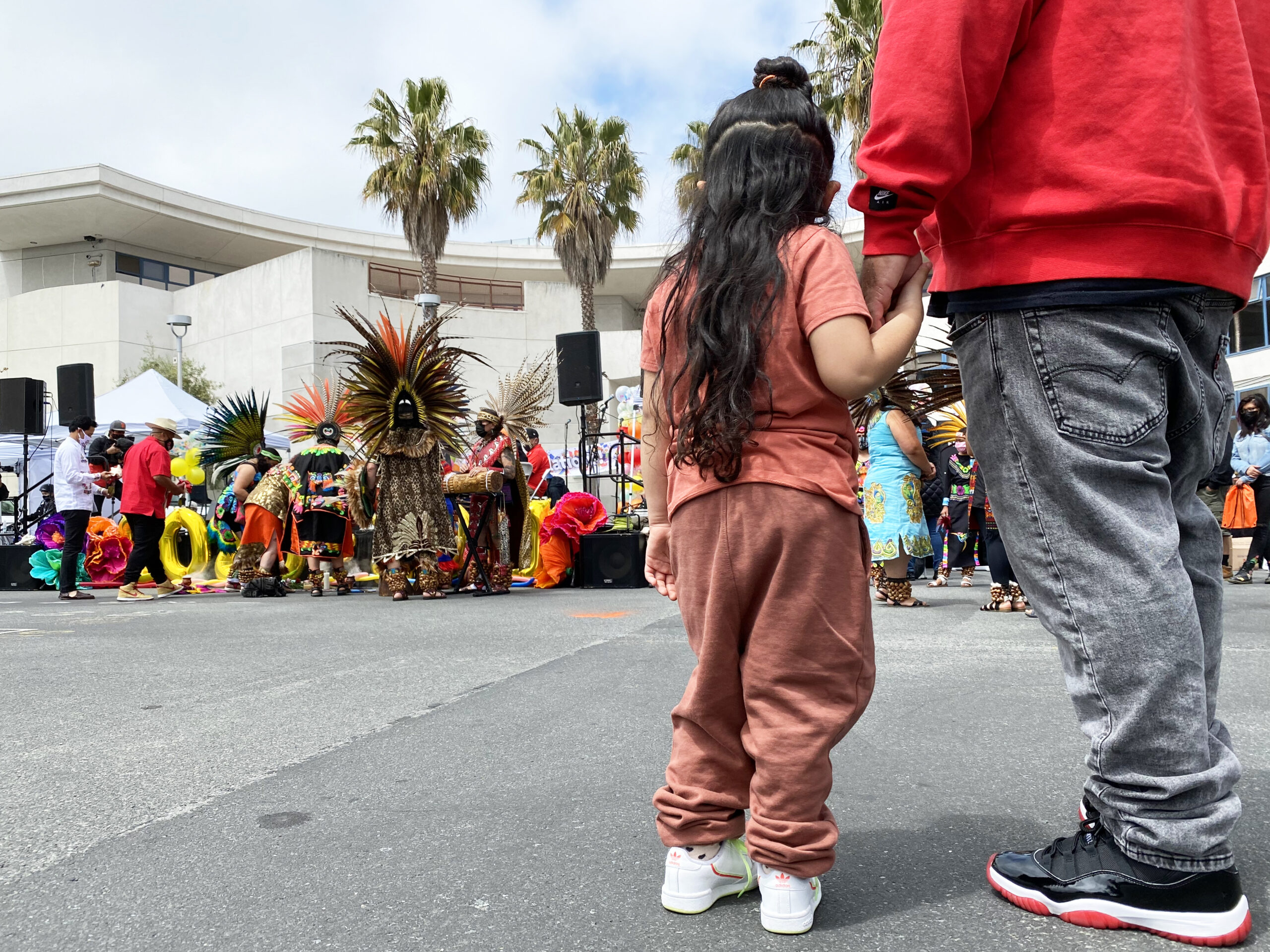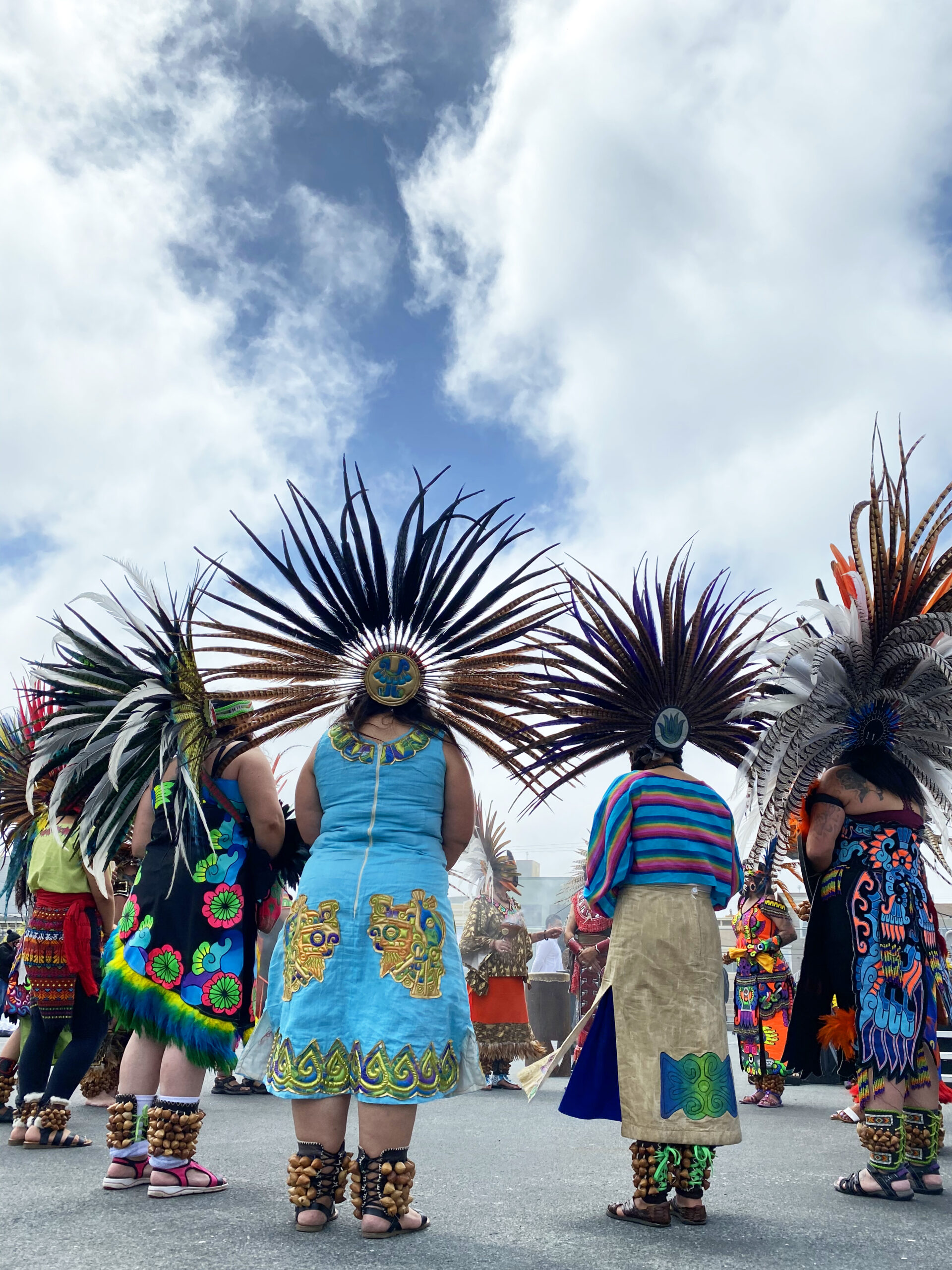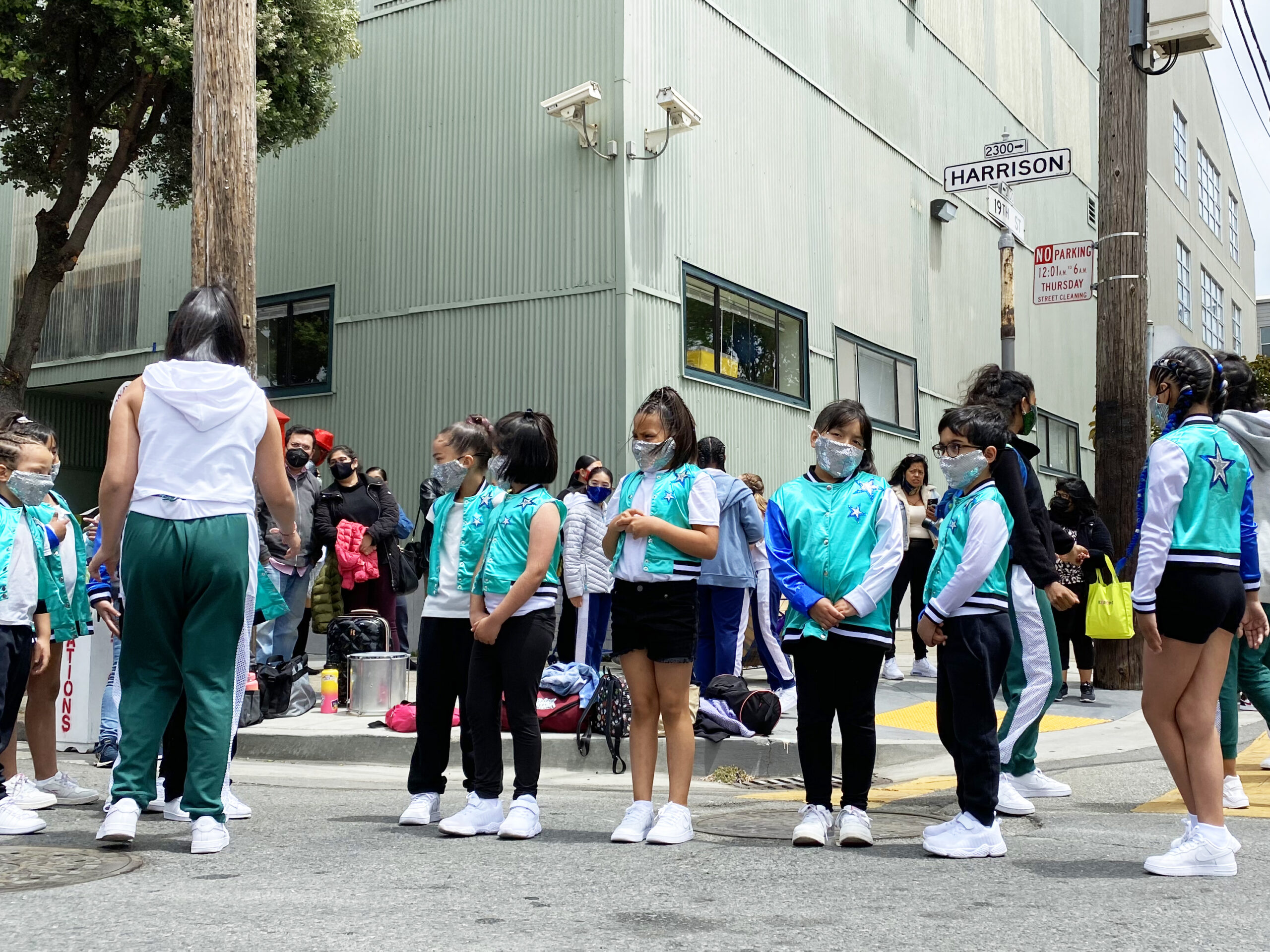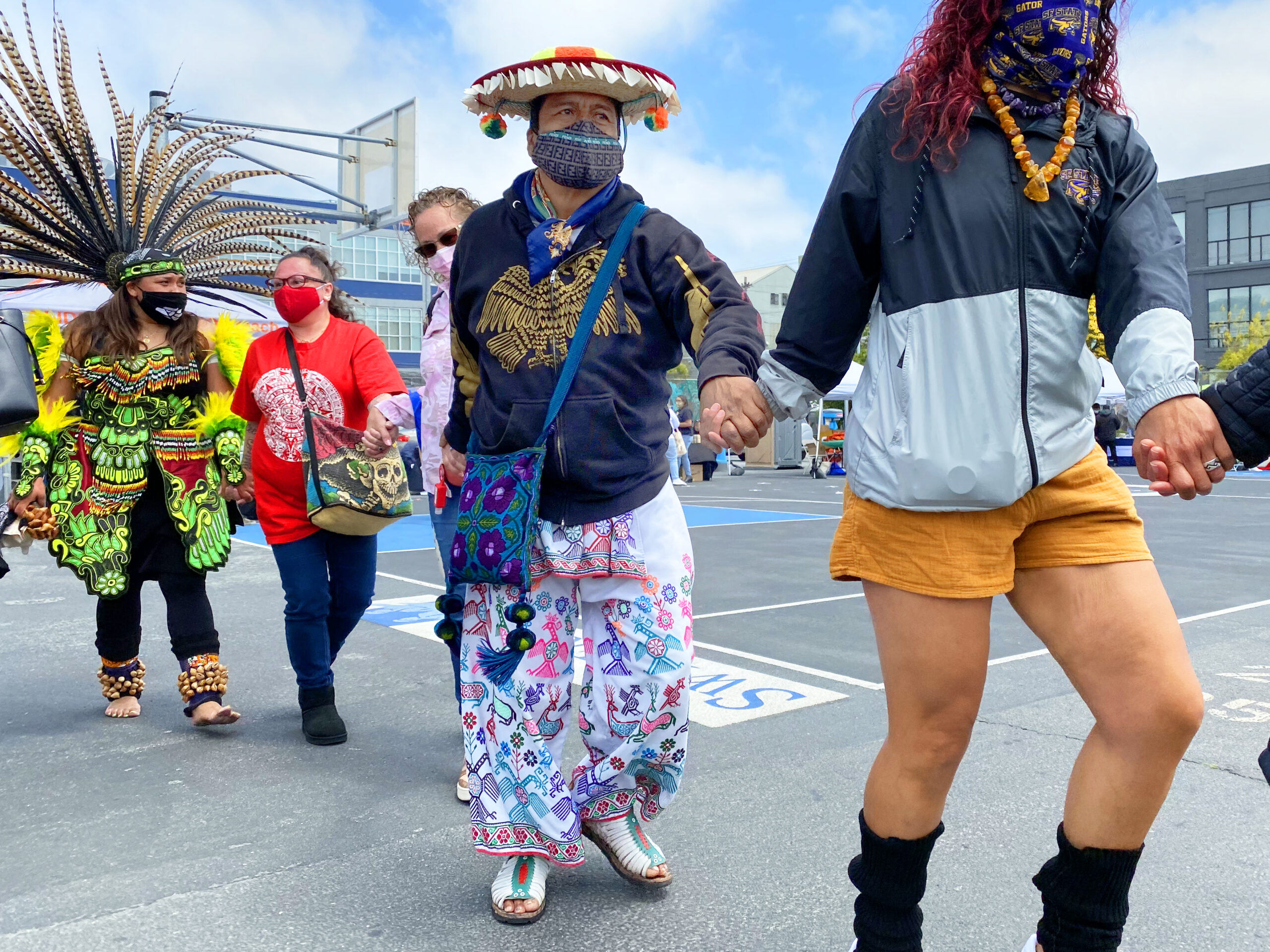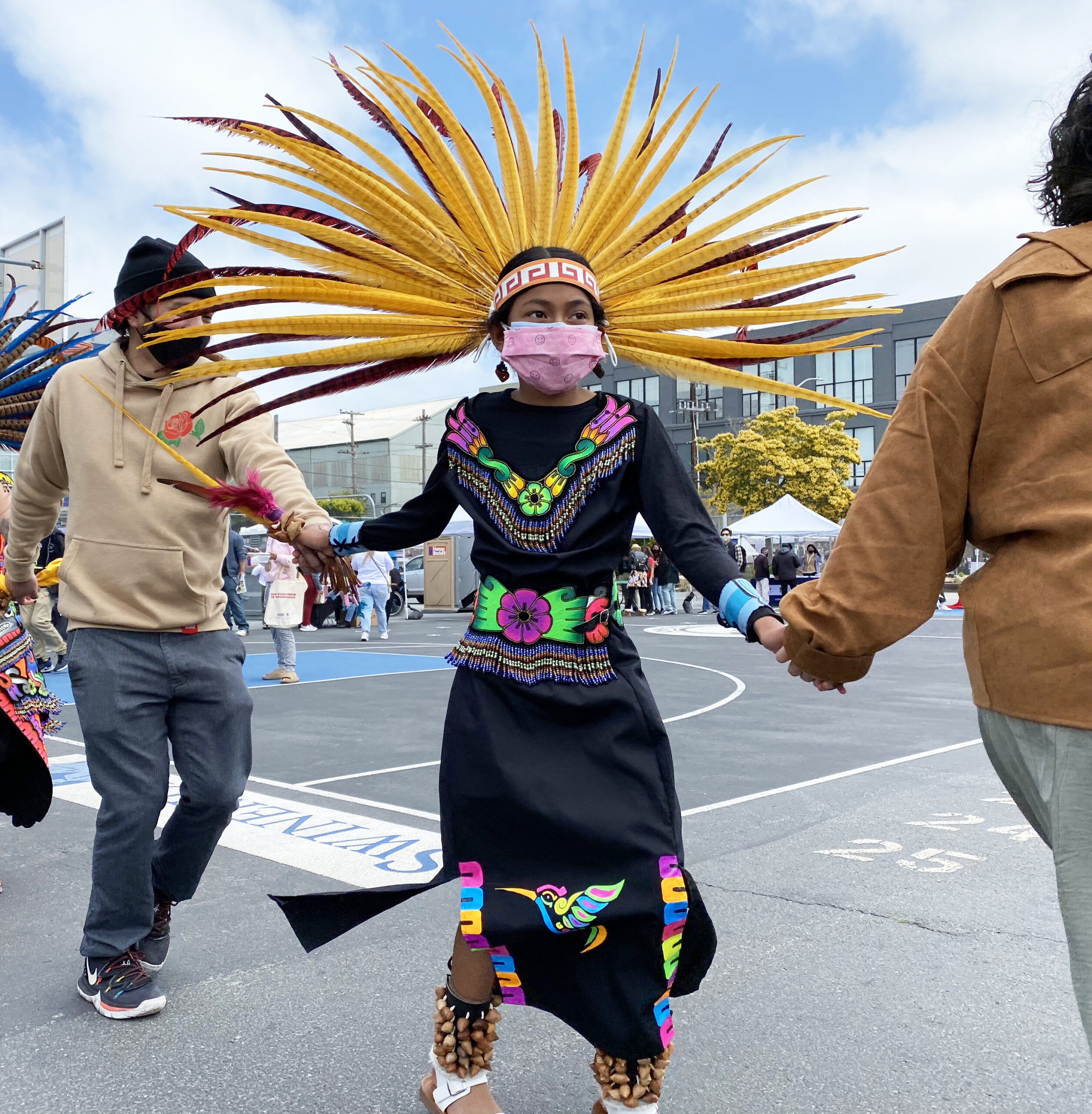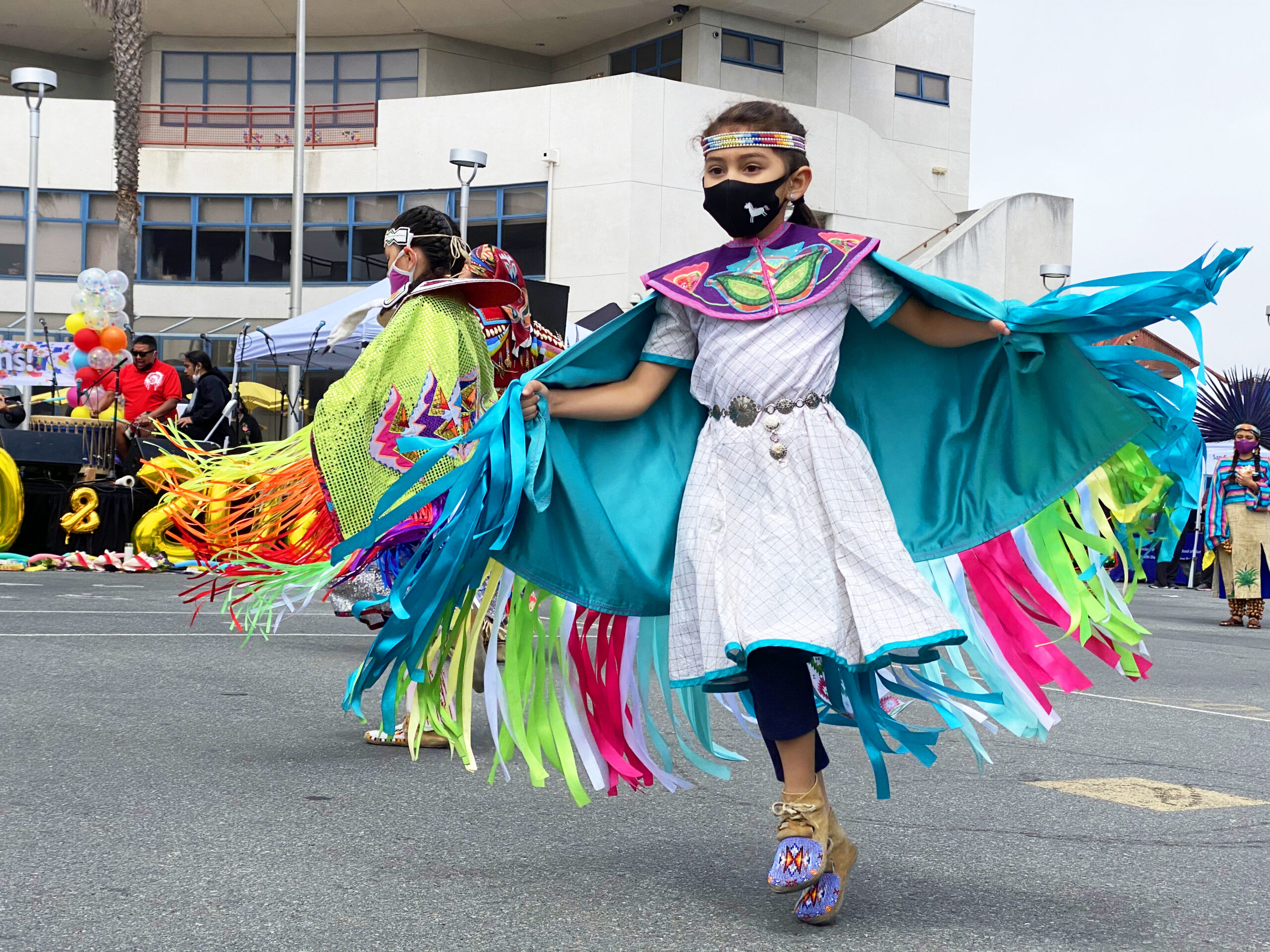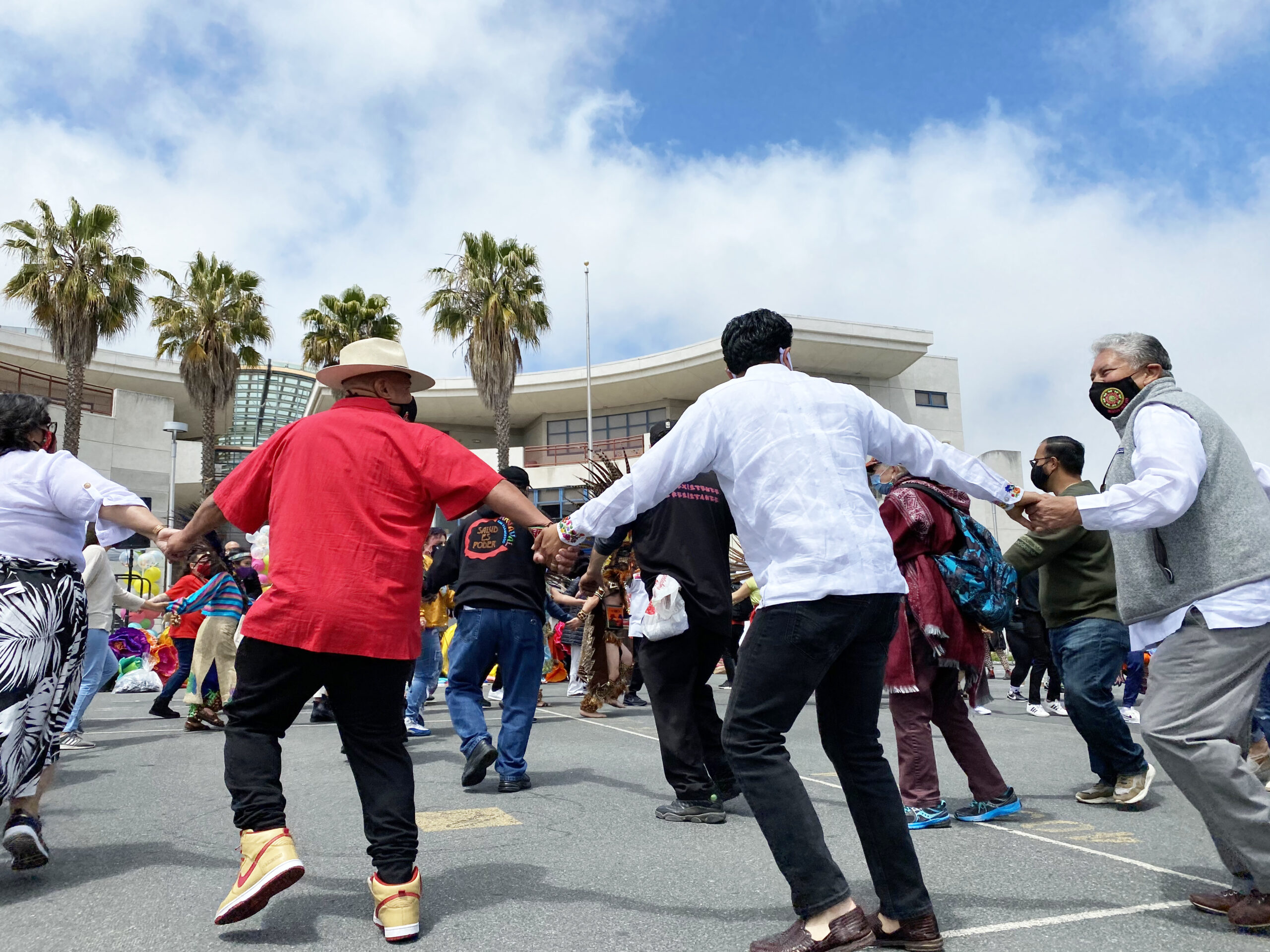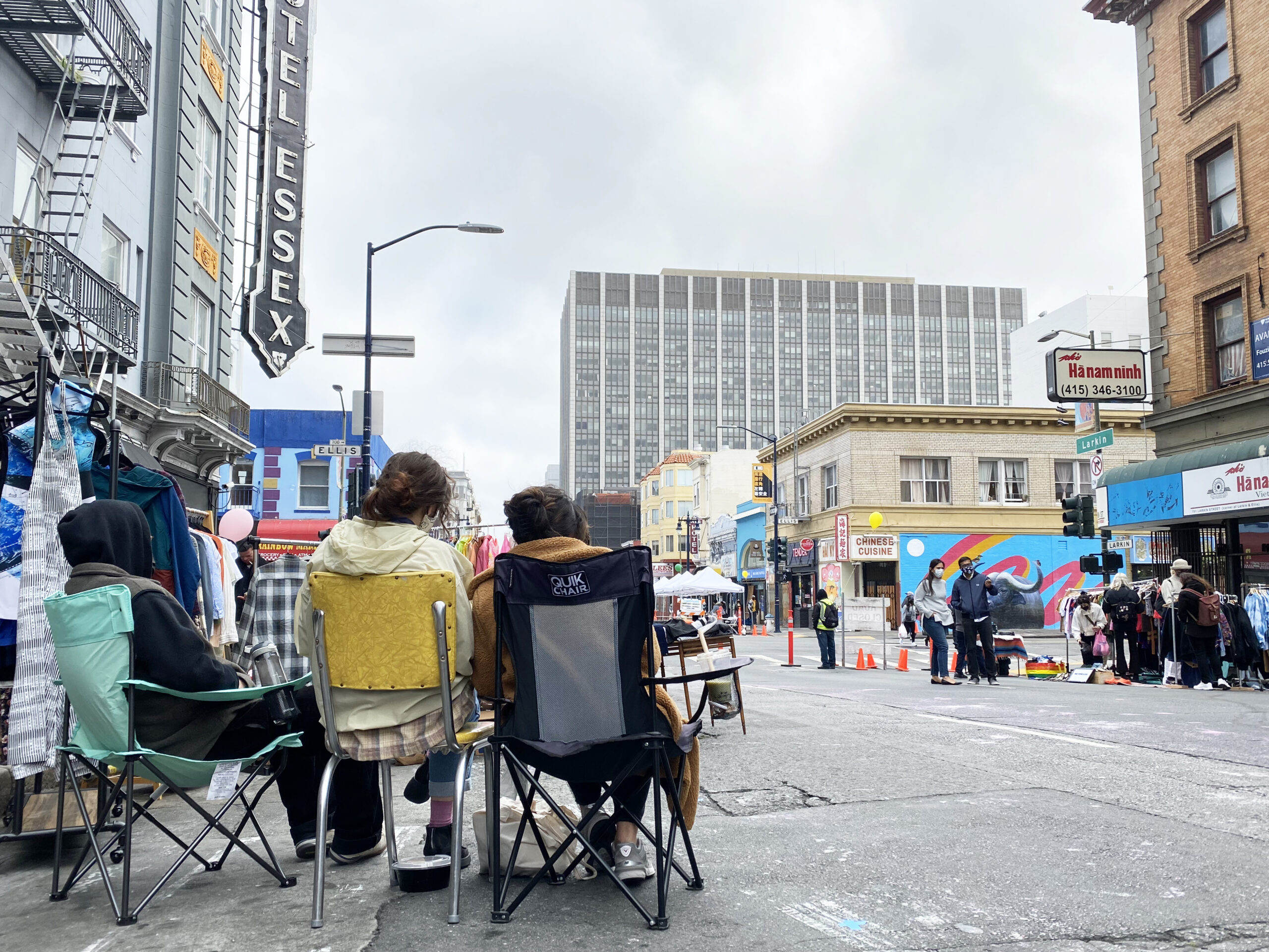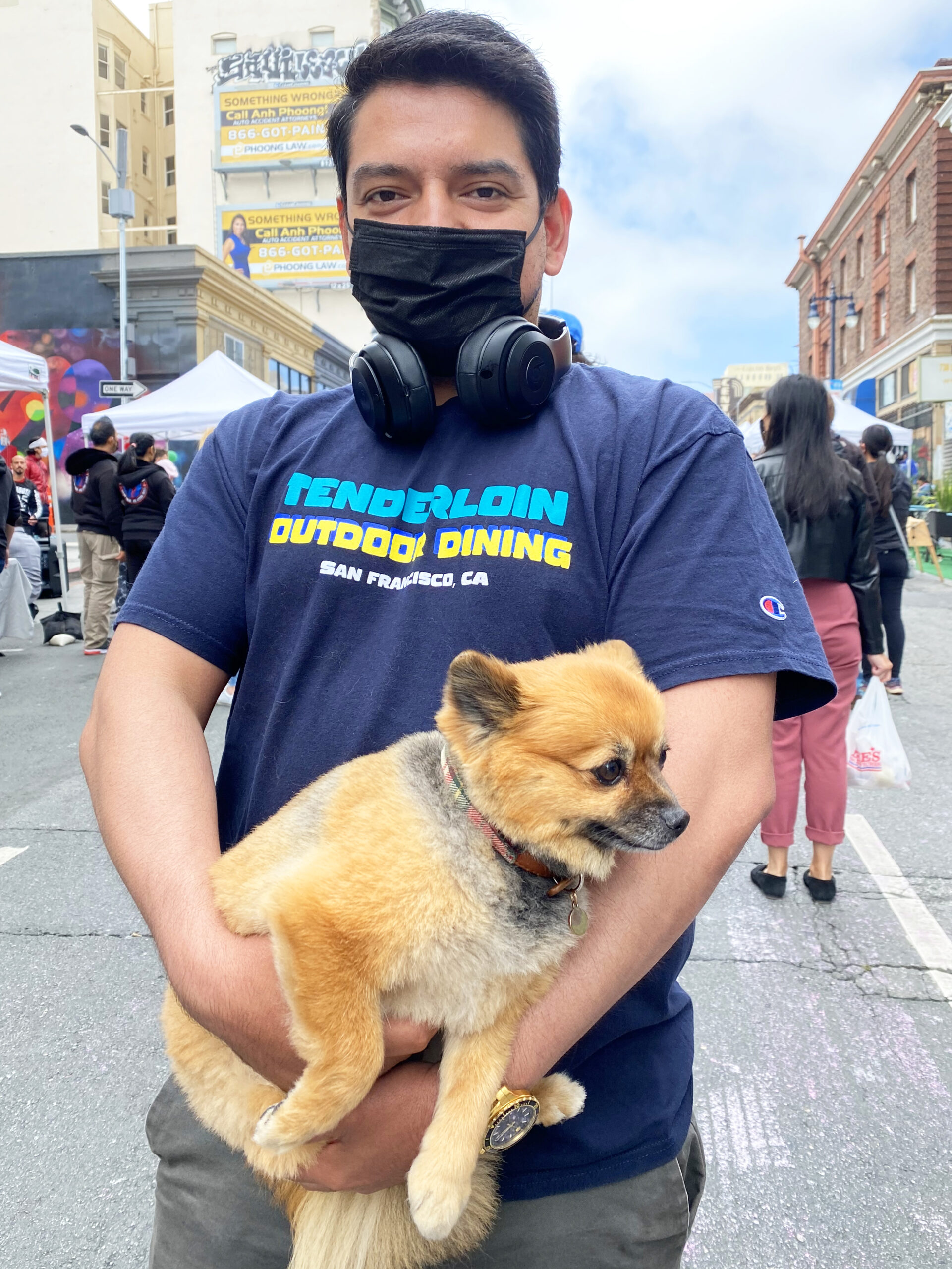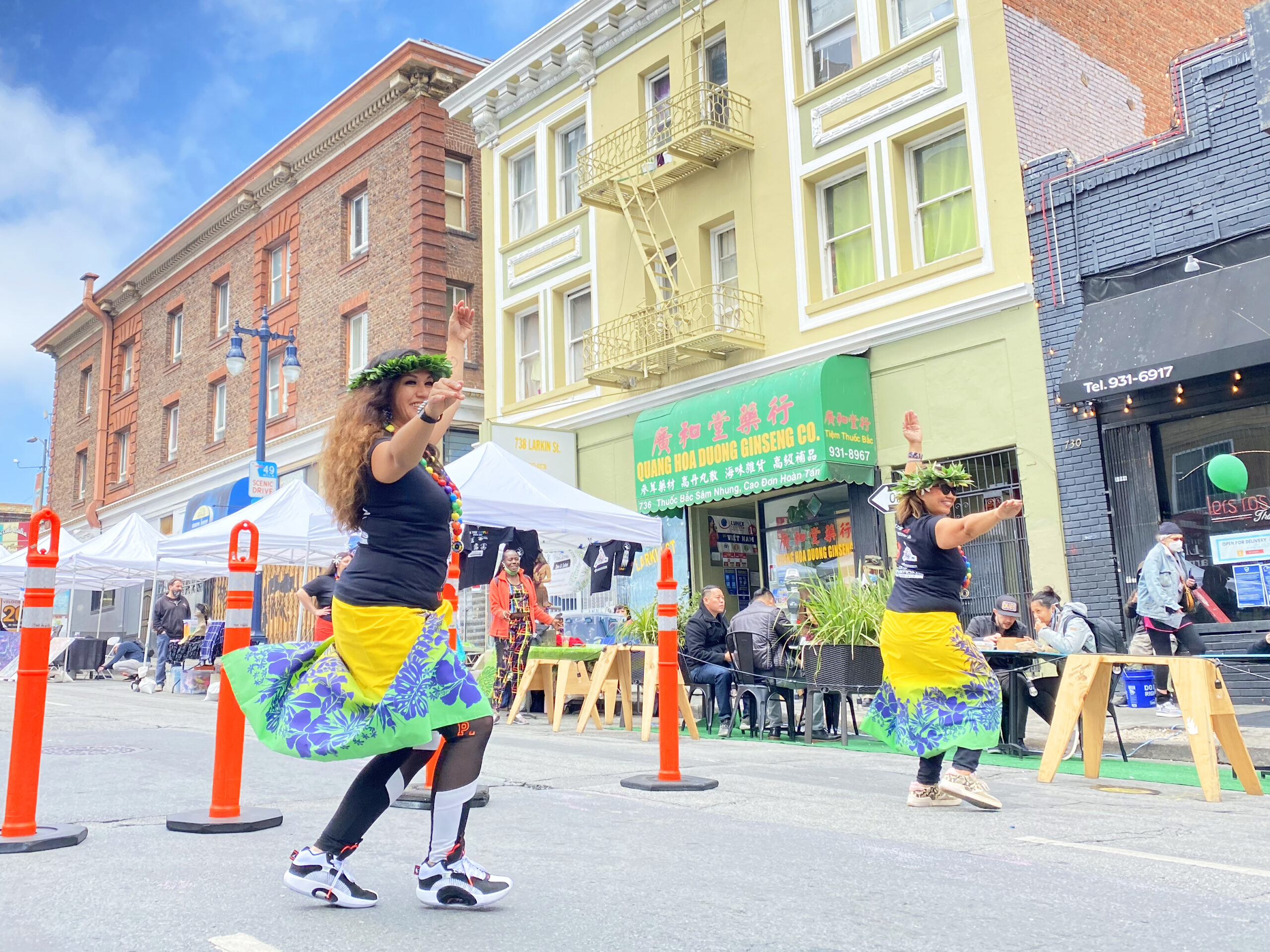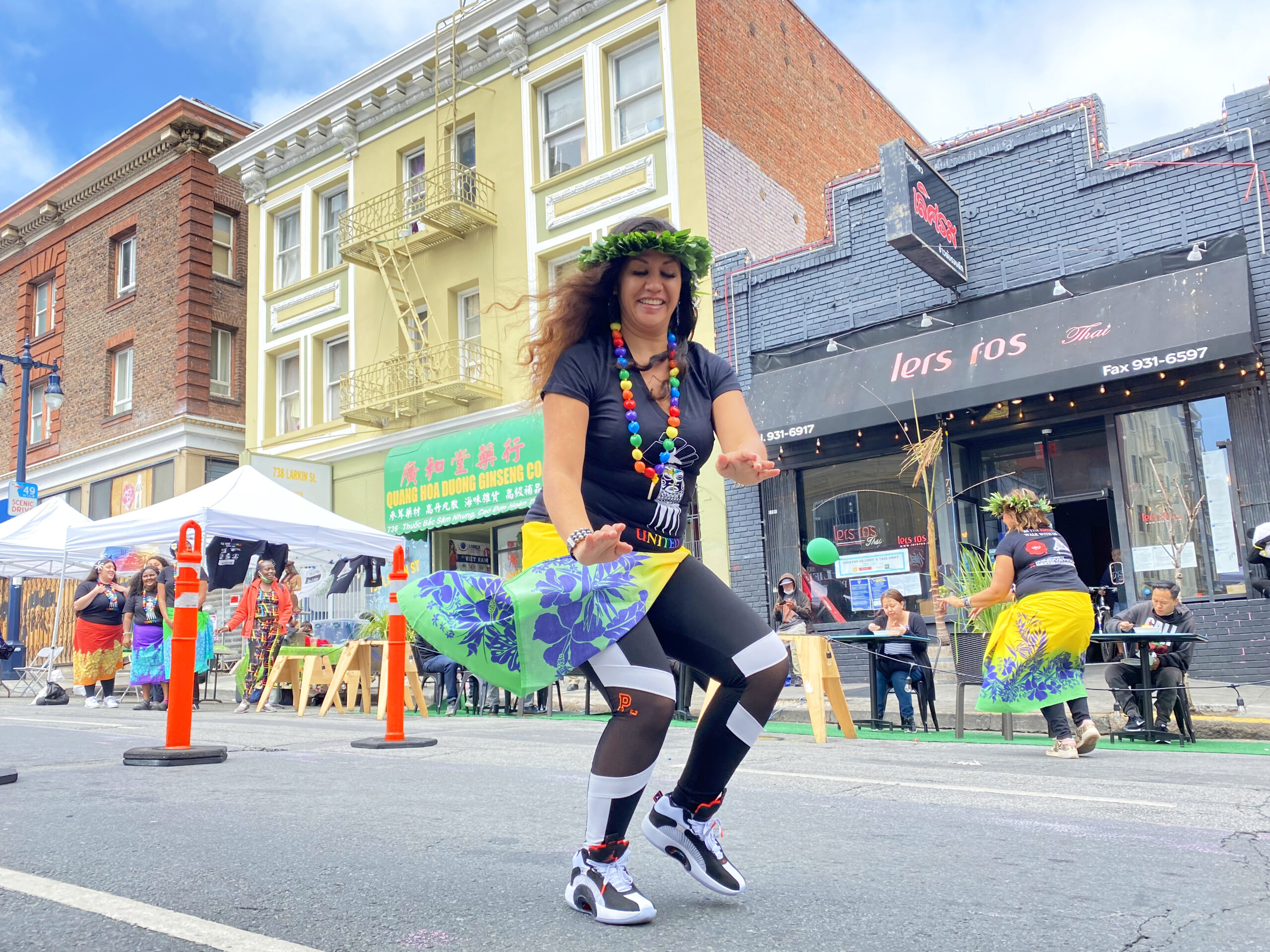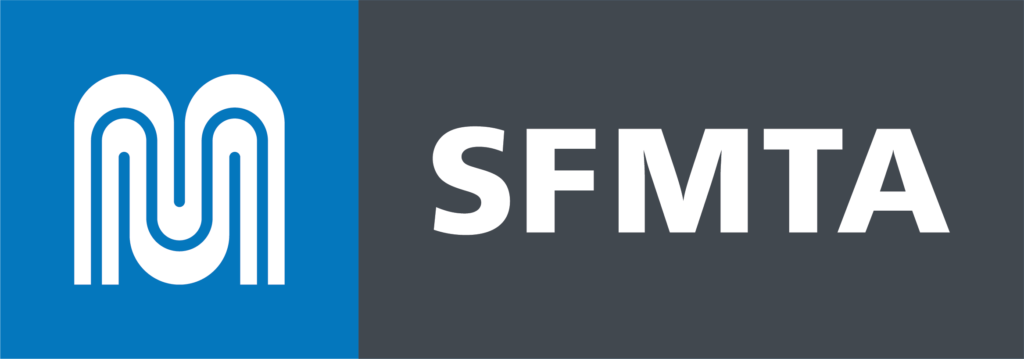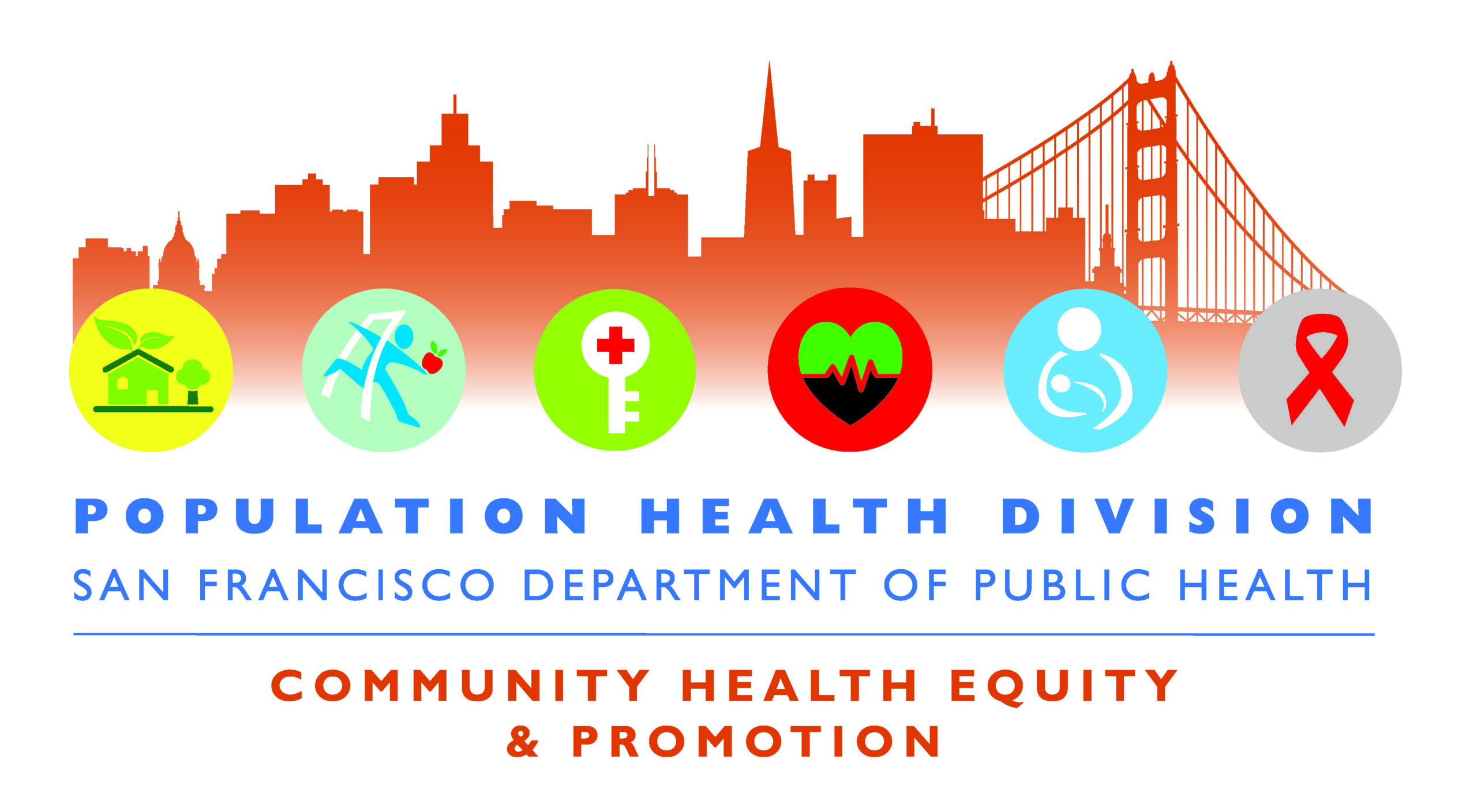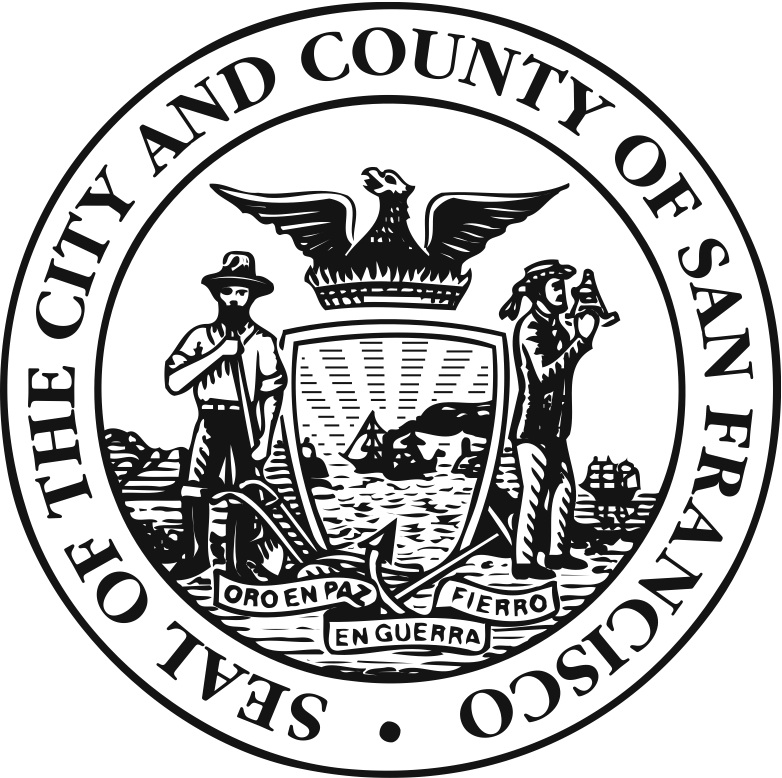FOR IMMEDIATE RELEASE
sundaystreets@livablecity.org
**PRESS RELEASE**
ANNOUNCED: Sunday Streets Phoenix Day Routes & Activities
5 Open Streets Destinations, 20+ Mile Bike Ride, Dozens of Neighbor-Hosted Block Parties
San Francisco – Routes and activities for Sunday Streets SF Phoenix Day on October 17th, 2021 from 12pm – 5pm have been announced and include a bigger than ever program taking place on one day featuring historic Sunday Streets SF routes, a 20+ mile community bike ride, dozens of neighbor-run block parties, merchant-led sidewalk sales, and free community-hosted activities across San Francisco. A program of the nonprofit Livable City, presented in partnership with SFMTA and the City and County of San Francisco, Sunday Streets Phoenix Day will provide a much needed opportunity for residents in every district of the City to celebrate community, health, resilience and car-free fun in the streets of San Francisco together.
Open streets destinations will offer free health and wellness activities alongside cultural offerings and open space for the whole family to enjoy. San Franciscans can start planning their Phoenix Day fun now with the routes and activities announced below or at SundayStreetSF.com/PhoenixDay. Sunday Streets Phoenix Day destinations and activities include:
- Valencia St between 16th and 24th Street (co-hosted by Carnaval San Francisco) Enjoy car-free fun between 16th and 24th Street on Valencia, with the Carnaval San Francisco family enlivening your classic Sunday Streets visit with free music and dance performances
- Tenderloin on Larkin between O’Farrell & McAllister & Golden Gate Ave between Polk & Jones St From flea market finds on Larkin St with Tenderloin Merchants Association to foodie finds on Golden Gate Ave with La Cocina’s newest dining hall, to a Golden Gate Ave Greenway prototype with St. Anthony’s Foundation, Phoenix Day in Tenderloin will be a Sunday Streets transformation like never before.
- Bayview on Sam Jordan’s Way, Oakdale Ave, Lane St & Yosemite Ave The Sunnyside is turning out for Phoenix Day with 4 blocks full of free activities for kids ages 8-80+. Hop on the T-Sunnydale train and get to all the destinations including free BBQ hosted by SVIP on Sam Jordan’s Way, a family fun zone hosted by Bmagic on Oakdale Ave at Mendell Plaza, a Jazz Fest redux with live music on Lane St with Merchants of Butchertown, and a college and professional resource hub hosted by 100% College Prep & YCD on Yosemite Ave.
- Chinatown on Grant Ave starting at California Building on the weekly Chinatown Walkway Weekends Shared Spaces program presented in partnership with the San Francisco Chinatown Merchants Association since July 2020, the October 17th session will bring the delight of free recreation and sports activities, music and dance, youth presentations & performances, and cultural exhibits to the oldest Chinatown in the United States for residents and visitors alike to enjoy on Phoenix Day.
- Excelsior on Onondaga between Alemany & Mission and London St off Geneva Ave (co-hosted by EAG and EOMM) Start the day off by joining a huge community clean-up on Mission St in Excelsior led by TogetherSF and Refuse Refuse. Treat yourself to a day of fun in the neighborhood afterwards and enjoy live entertainment and community resources on Onondaga St and merchant specials and live music stage on London St.
- Cross City Connector Bike Route & Community Bike Ride Powered by PODER y Bicis Del Pueblo This 20+ mile urban bike route showcases San Francisco’s Slow Streets networks, car-free Great Highway and Golden Gate Park, and Better Market Street. With multiple rest stations along the way sponsored by Spare the Air to fuel up, Sunday Streets fans are encouraged to choose their own adventure along the Cross City Connector Bike Route anytime on Phoenix Day or join the community bike ride powered by PODER y Bicis Del Pueblo leaving In Chan Kaajal Park at 12:00pm.
- Neighbor-Hosted Block Parties San Franciscans across the city are taking to the streets with their neighbors on Phoenix Day! Pass through some parties on the Cross City Connector Bike Ride or visit one of your friendly neighborhood block parties.
- Sidewalk Sales & Community-Hosted Fun Community members are showing up and showing out for Phoenix Day and will be hosting sidewalk sales and free activities at destinations across San Francisco. Activities will be added right up to event-day, so Sunday Streets fans are encouraged to check-out the schedule on SundayStreetsSF.com/PhoenixDay before heading out to the streets on October 17th.
“Sunday Streets SF celebrates the connections that make our communities and our city strong,” said Mayor Breed. “The pandemic tested our resilience and well-being, and reminded us just how important outdoor gathering spaces are for the growth and health of our neighborhoods. Sunday Streets provide us the opportunity to celebrate our city, together.”
Inspired by the Ciclovía in Bogotá, Colombia, the Sunday Streets SF program started in 2008 as a one-day pilot and has since grown into a San Francisco institution that hosts an annual season of free, fun events to empower local communities to transform one to four miles of car-congested streets into car-free community spaces for kids to play, seniors to stroll, organizations and businesses to connect and neighbors to meet. After 18+ months of hibernation due to the pandemic, Sunday Streets Phoenix Day will once again bring free recreational activities, resources, and fun to the streets for tens of thousands of San Franciscans to enjoy.
“It’s a critical moment for the City,” says SFMTA Director, Jeffrey Tumlin, “Our struggles and divisions intensified during the pandemic and it’s more important than ever to transform our streets into places that foster human connection and civic pride. Sunday Streets Phoenix Day will be a monumental opportunity to do that together as a City.”
Livable City believes collaborating on open street events is one of the most powerful ways to engage diverse communities, foster health, joy and connection in our neighborhoods, and make our City more resilient. Guided by this belief and the enormous need for outdoor space during the pandemic, Livable City has been focused on supporting community-led Shared Spaces and Play Streets closures in the Tenderloin, Chinatown, South of Market, Bayview, Excelsior, and the Mission since the summer of 2020, shortly after the COVID-19 pandemic grounded the large-format Sunday Streets SF events.
“Opportunities for exercise and fresh air are essential,” says Director of Health, Dr. Grant Colfax, of the San Francisco Department of Public Health, “and we’re grateful that Livable City pivoted the Sunday Streets program to provide safe and fun opportunities for our most impacted communities as we continue to reopen our economy and welcome our residents back to their routines.”
At the start of 2021, it was clear to Livable City that Sunday Streets SF in its large format wasn’t possible until the end of the year, but that these smaller, community-driven open streets were critical to the emotional, physical and economic health of our neighborhoods during the pandemic. In response, Livable City developed the Sunday Streets Rise Together season with partner open streets operators to offer health order compliant wellness, arts, music, and cultural programming in the City’s most impacted neighborhoods. Now with a vaccination rate of 81% of eligible San Franciscans, and most pandemic restrictions lifted, San Francisco can finally start getting ready for a big celebration on Sunday Streets Phoenix Day. “The pandemic has driven home the essential nature of open space and healthy outdoor recreation,” says Phil Ginsburg, General Manager and SF Rec and Parks Department. “Sunday Streets celebrates togetherness and the beauty of outdoor spaces and we can’t wait to bring it back this year with Livable City.”
“We’re all recovering from the pandemic and need spaces to heal and come together. To ensure every community in our city has a chance to do that, we’re embracing a new format for Sunday Streets Phoenix Day,” says Katy Birnbaum, Livable City’s Associate Director and Sunday Streets SF’s steward for the past seven years. Birnbaum continues, “we’ll still create miles of car-free space in the streets together. We’ll still get people moving and having fun walking and biking around their neighborhood. But we’re also trying some new things – like a cross city bike ride and neighbor-hosted block parties – so everyone can take part on Phoenix Day at their own pace.”
Livable City’s “keep it local” philosophy has been another critical element to the Sunday Streets SF program and will be more important to small businesses and community members this year than ever before. A progressive fundraising model keeps the Sunday Streets SF program accessible, with City grants and major sponsors providing the support needed to offset costs for free programming and smaller organizations and community groups to participate. “Sunday Streets SF has long been a catalyst for neighborhood vibrancy. When streets are transformed into open and safe spaces for people to play, bike, and walk, we foster a sense of community for our families and local businesses,” said Kate Sofis, the Director of the Office of Economic and Workforce Development. “Phoenix Day is an opportunity for us to come together and celebrate the city’s opening and recovery while activating our streets and our neighborhoods.” From hiring local event ambassadors, to showcasing local organizations and businesses, to purchasing from local vendors, Sunday Streets SF supports, collaborates with, and uplifts the people who make the program what it is today.
On the eve of relaunching the Sunday Streets SF program, Livable City is grateful for the whole Sunday Streets SF family – from the City and County of San Francisco and all of the agencies that provide in-kind and monetary support, to the hundreds of dedicated volunteers, to the brilliant and diverse community partners, to the dozens of exhibitors and sponsors – who has made the program an institution over the past 13 years and is fueling an epic revival with Phoenix Day.
Sunday Streets SF Phoenix Day is made possible by the following Season Sponsors: San Francisco Department of Public Health CHEP Division, Bay Area Air Quality Management District (BAAQMD), and Mayor’s Office of Economic and Workforce Development (OEWD), San Francisco Public Works, SF Dept of Recreation and Parks, GameScape, Spin, Golden State Warriors & Thrive City, ACLU, Dolby, Lighthouse Public Relations, and Wu Yee Children’s Services. Other Sponsors include Alaska Airlines, CEMEX, Fehr & Peers, iHeart Radio, the Examiner, SF Giants, and Anthem, and Welcome Home Funding.
Additional support is provided by incredible community partners, including: Carnaval San Francisco, PODER y Bicis Del Pueblo, Bayview Magic, Young Community Developers (YCD) & 100% College Prep, SVIP, Merchants of Butchertown, SFAAACD, Tenderloin Community Benefit District (TLCBD), St. Anthony’s Foundation, Tenderloin Merchants Association, Excelsior Action Group (EAG), Excelsior Outer Mission Merchants (EOMM), Chinatown Merchants Association, Community Youth Center, Fluid Coffee, FS Studio, La Cocina, Mission Housing, Refuse Refuse, Tenderloin Neighborhood Development Center (TNDC), Golden Gate Restaurant Association, SF Travel, Hotel Council of San Francisco, SF Chamber of Commerce, Next SF, SFUSD Libraries, Chinese Culture Center of San Francisco, Chinese Historical Society of America, Bayview Merchant Association, Fillmore Merchant Association, Ingleside Merchant Association, Lakeside Merchant Association, Merchants of Butchertown, People of Parkside Taraval , Tenderloin Merchant Association, Balboa Village Merchants Association, Castro Merchants, Divisadero Merchants, Glen Park Merchants , Haight Ashbury Merchants, Sacramento St Merchants, Union St Merchants, Valencia Merchants, Marina Merchants, Japantown Merchants, North Beach Merchants, Potrero Dogpatch Merchants, Mission Merchants, South of Market Merchants, Outer Sunset Merchants, West Portal Merchants, Noe Valley Merchants, North East Mission Merchants, Fisherman’s Wharf Merchants, Polk St Merchants, Larkin St Merchants, Hayes Valley Merchants, Lower Haight Merchants, Geary Blvd Merchants.
Sunday Streets SF invites all San Franciscans to be part of Phoenix Day by attending an event or bike ride, hosting a block party, exhibiting, volunteering and/or a monetary donation and sponsorships. To find out how and get more information on Phoenix Day, visit SundayStreetsSF.com.
About Sunday Streets SF
Sunday Streets is a program of the nonprofit Livable City, presented in partnership with the San Francisco Municipal Transportation Agency and the San Francisco Department of Public Health CHEP Division and the Shape Up SF Coalition. Additional City support comes from the Department of Public Works, Recreation & Parks Department, SF Police Department, SF County Transportation Authority, San Francisco Mayor London Breed and her offices and the San Francisco Board of Supervisors. For more information about Sunday Streets SF or local access needs, visit: www.SundayStreetsSF.com. For information on Muni reroutes and parking changes, call 311 or go to www.sfgov.org/311.
About Livable City
Livable City works to create a San Francisco of great streets and complete neighborhoods, where walking, bicycling, and transit are the best choices for most trips, where public spaces are beautiful, well-designed, and well-maintained, and where housing is plentiful and affordable. For more information on Livable City, visit: https://livablecity.org.
